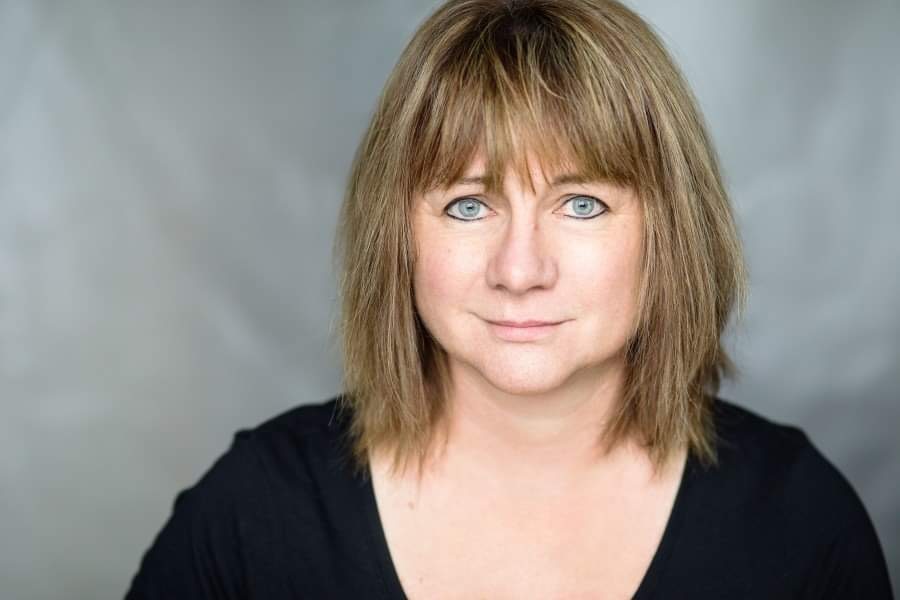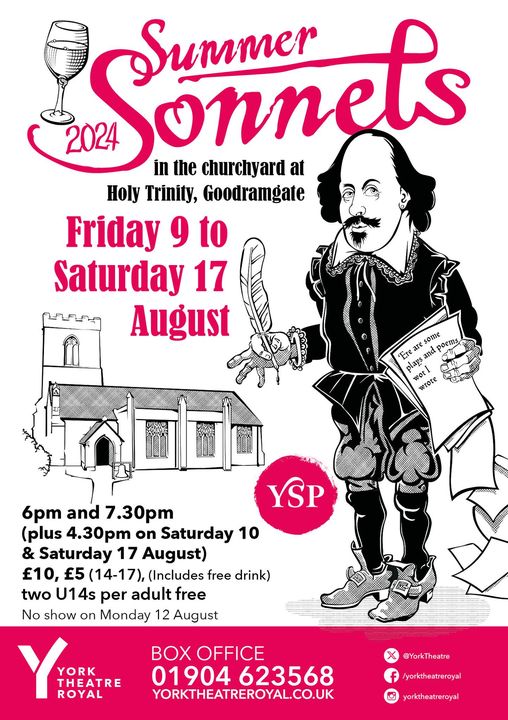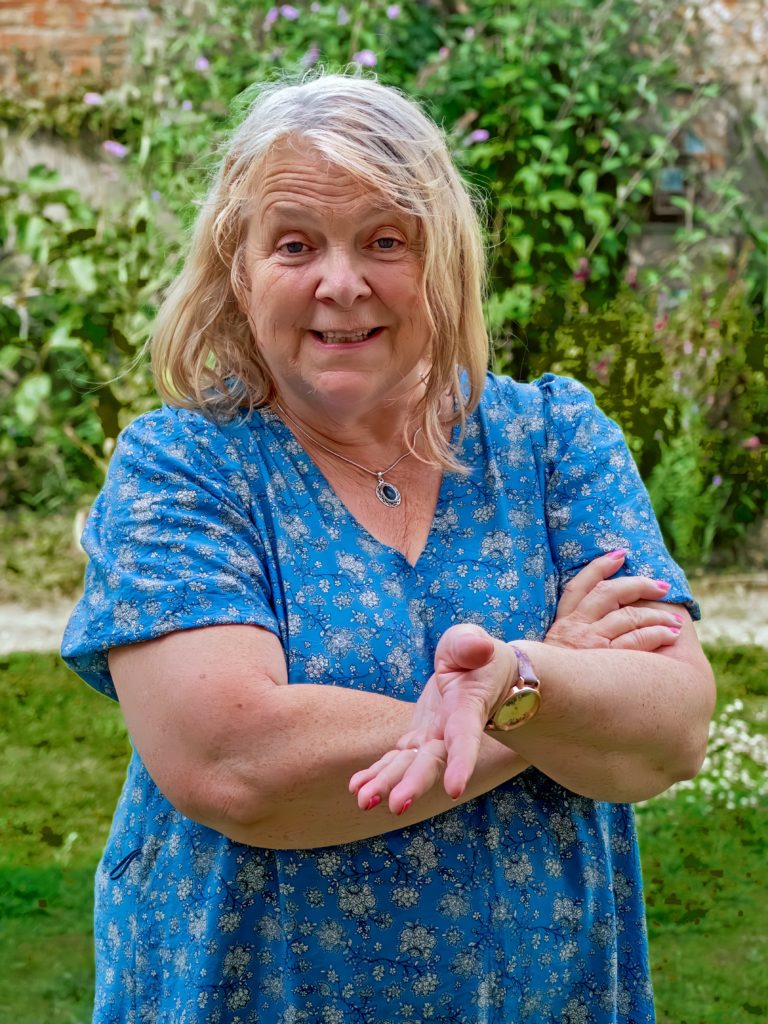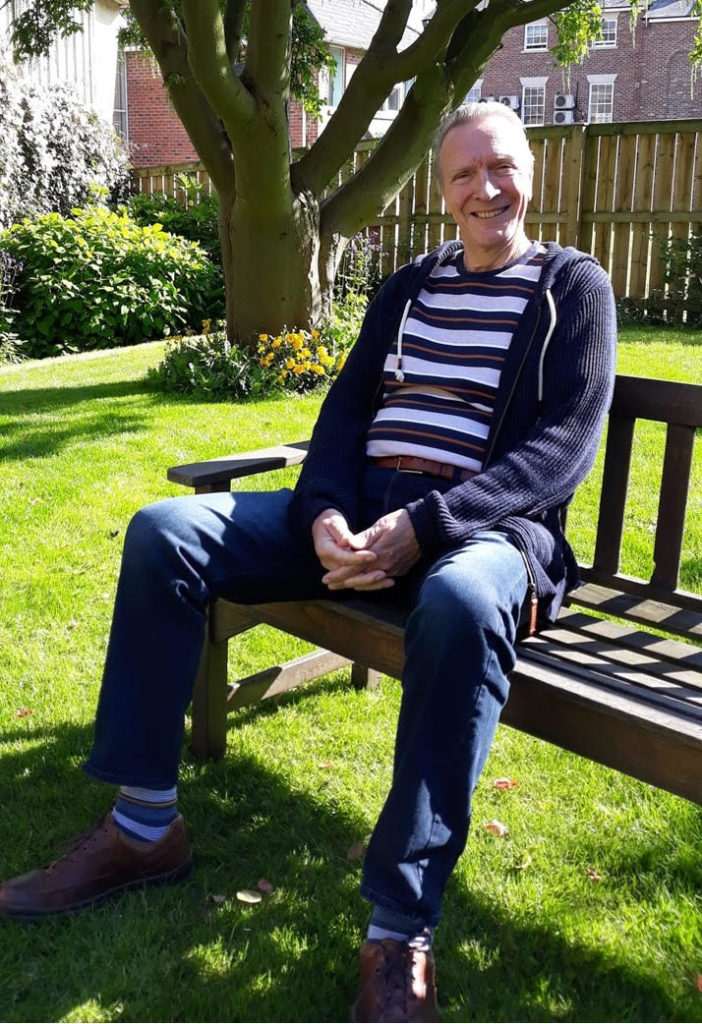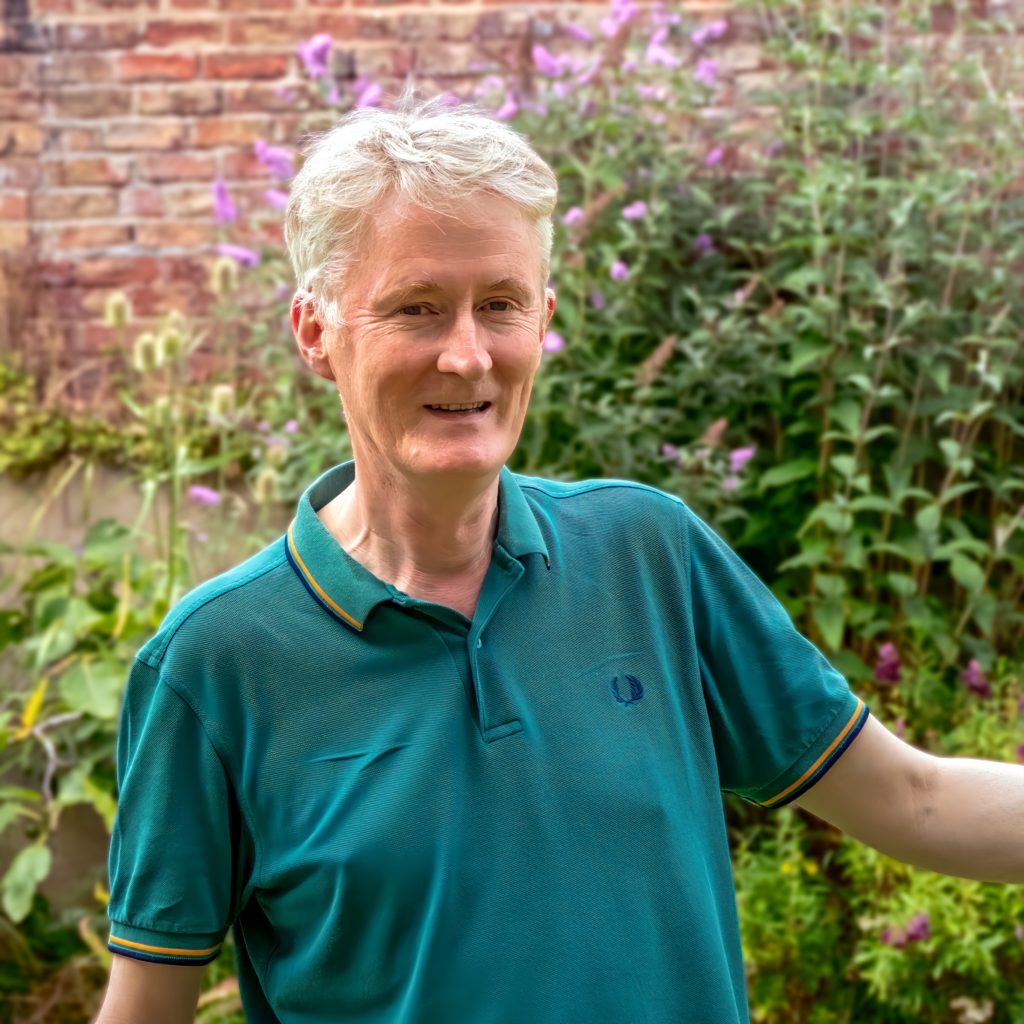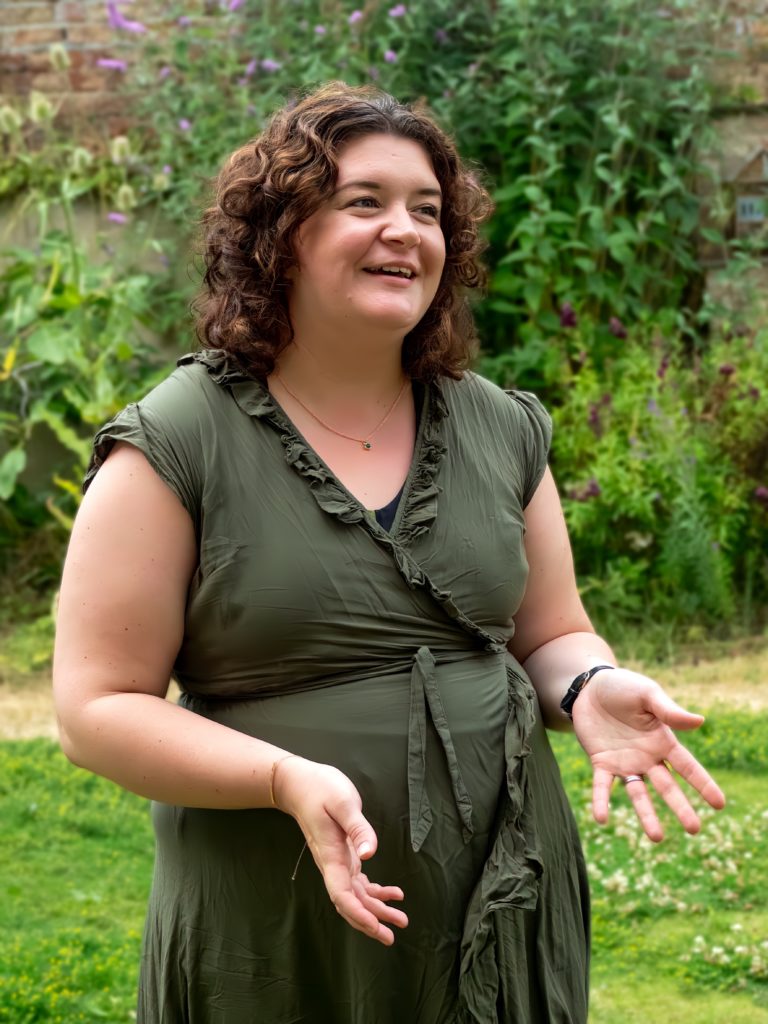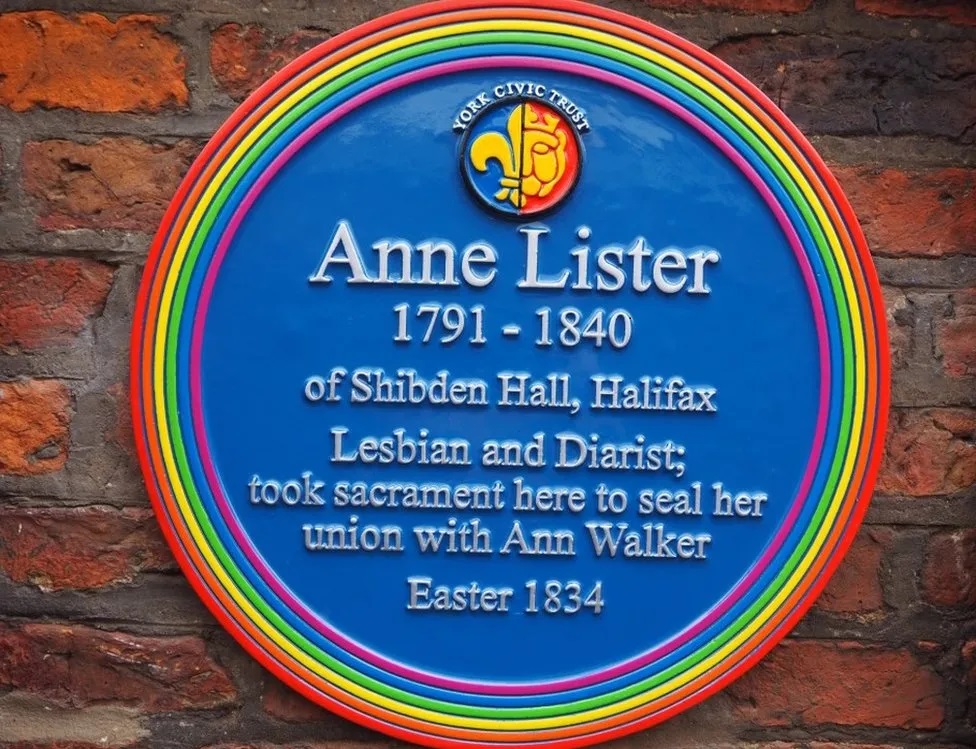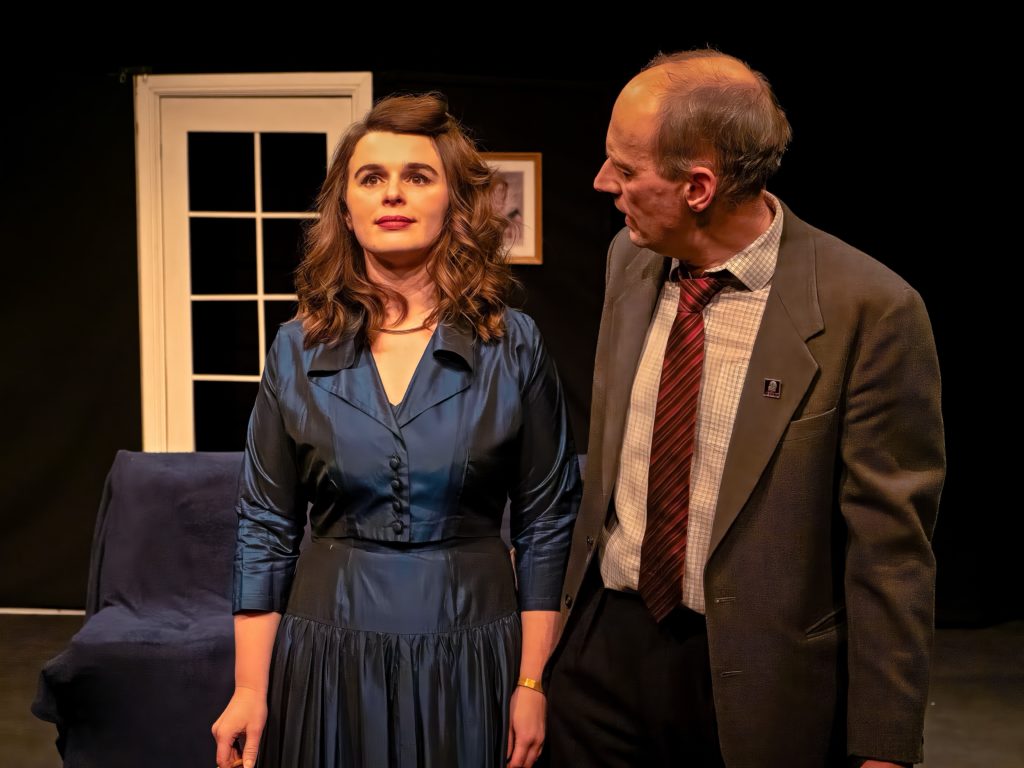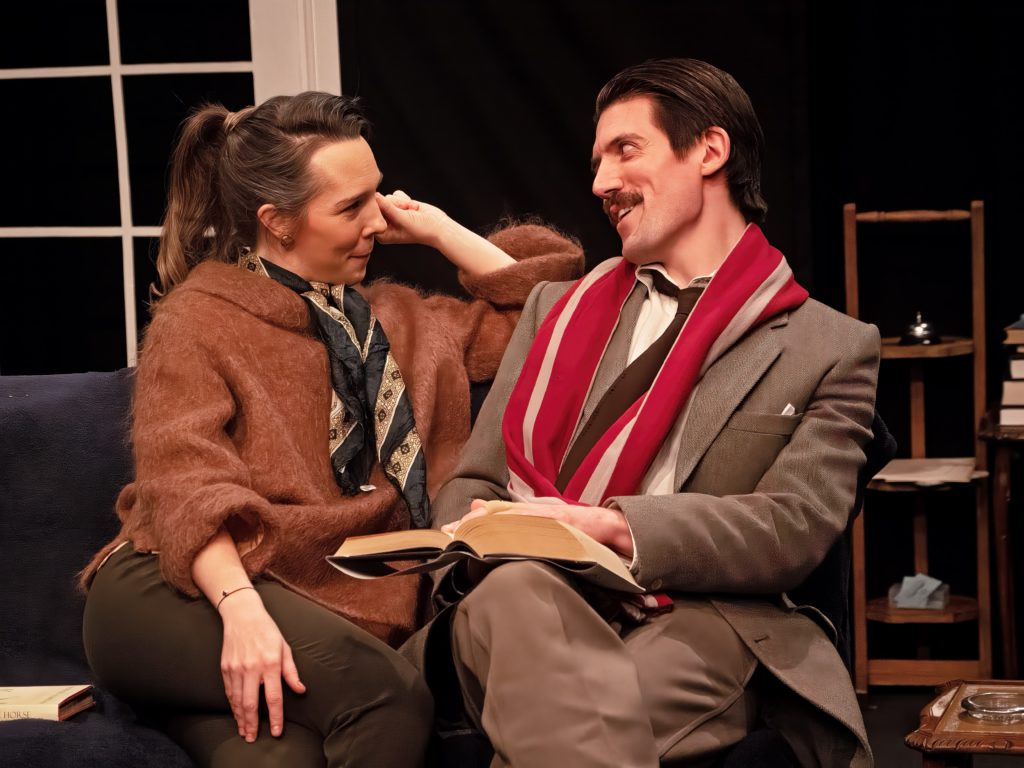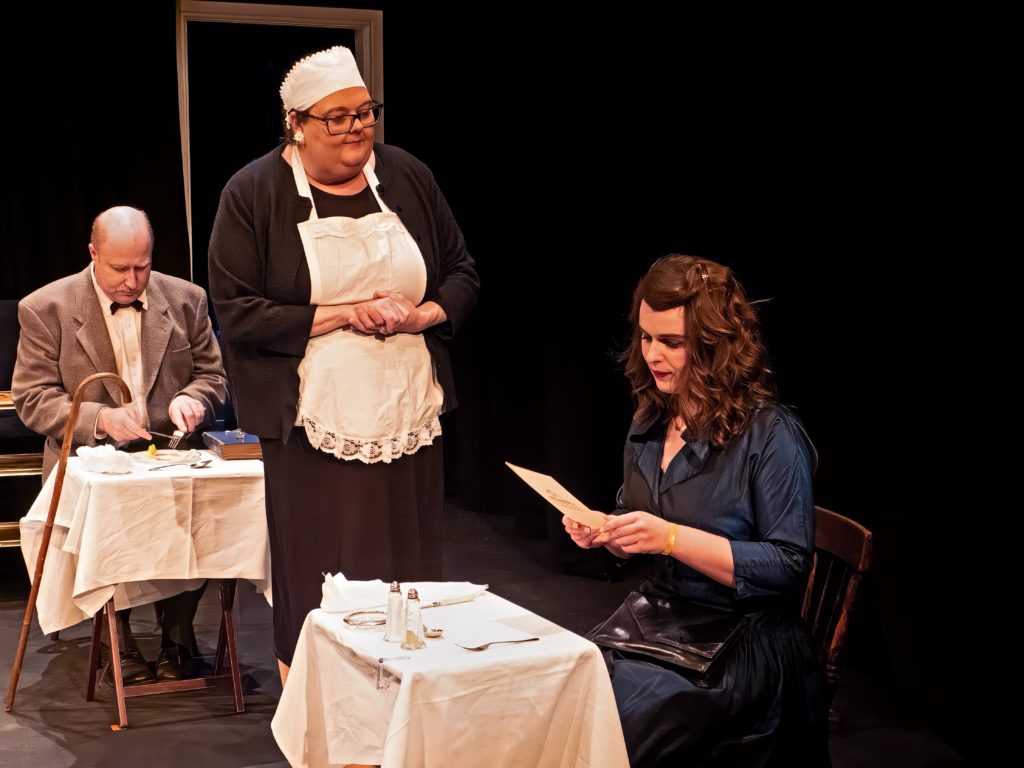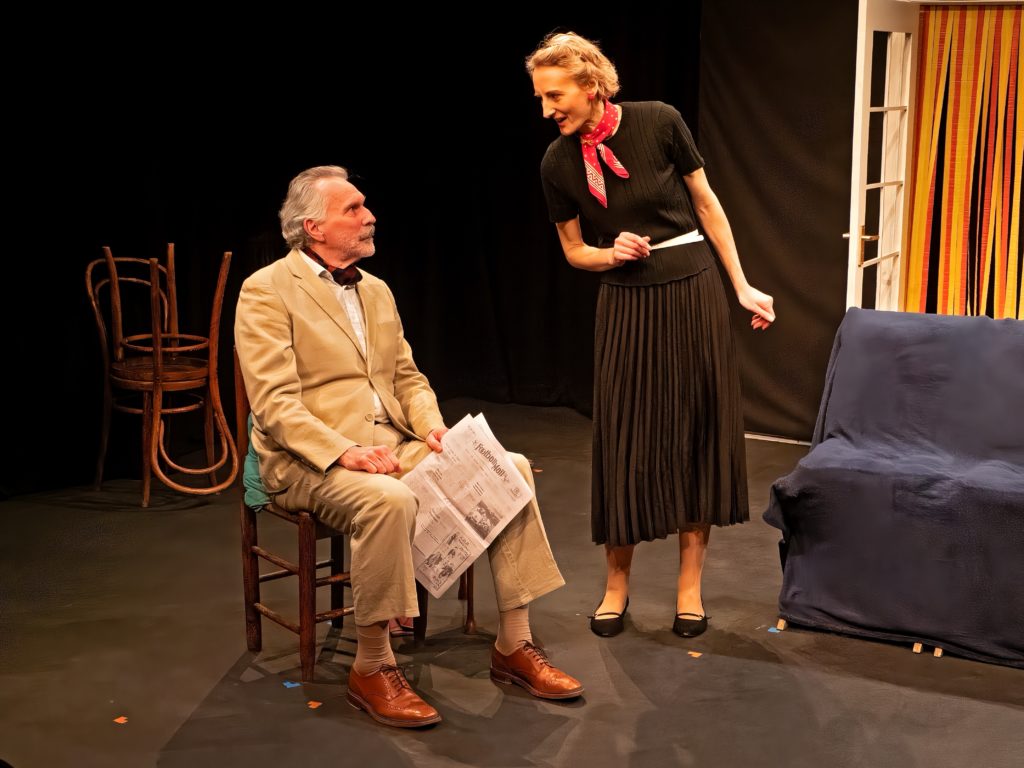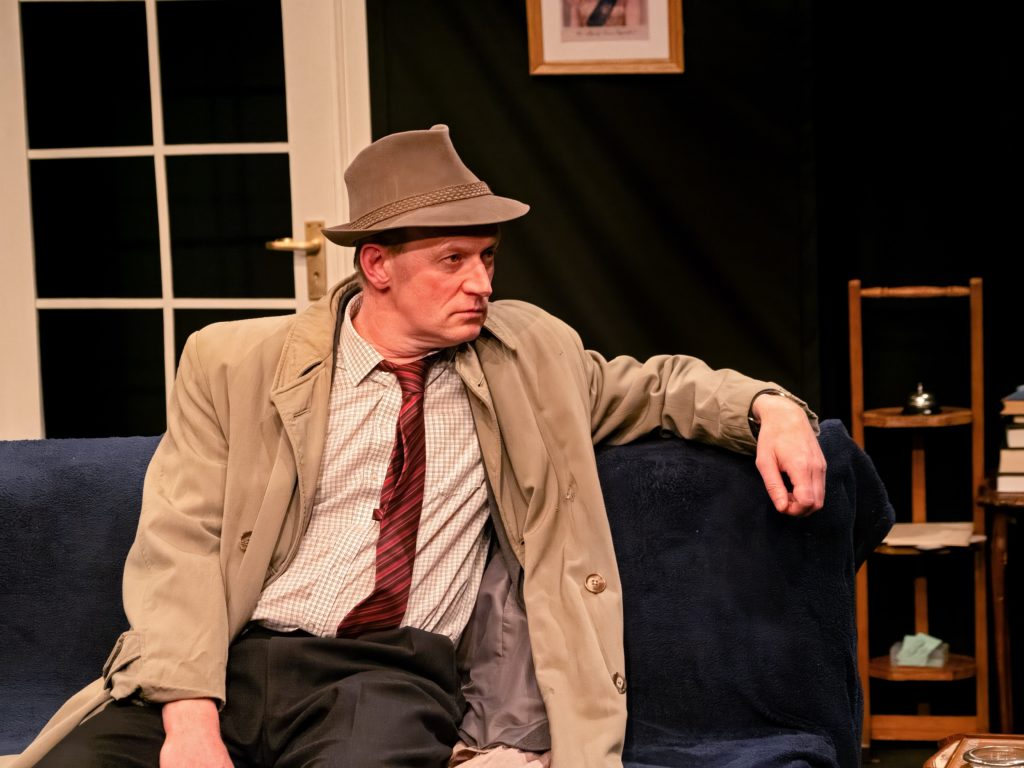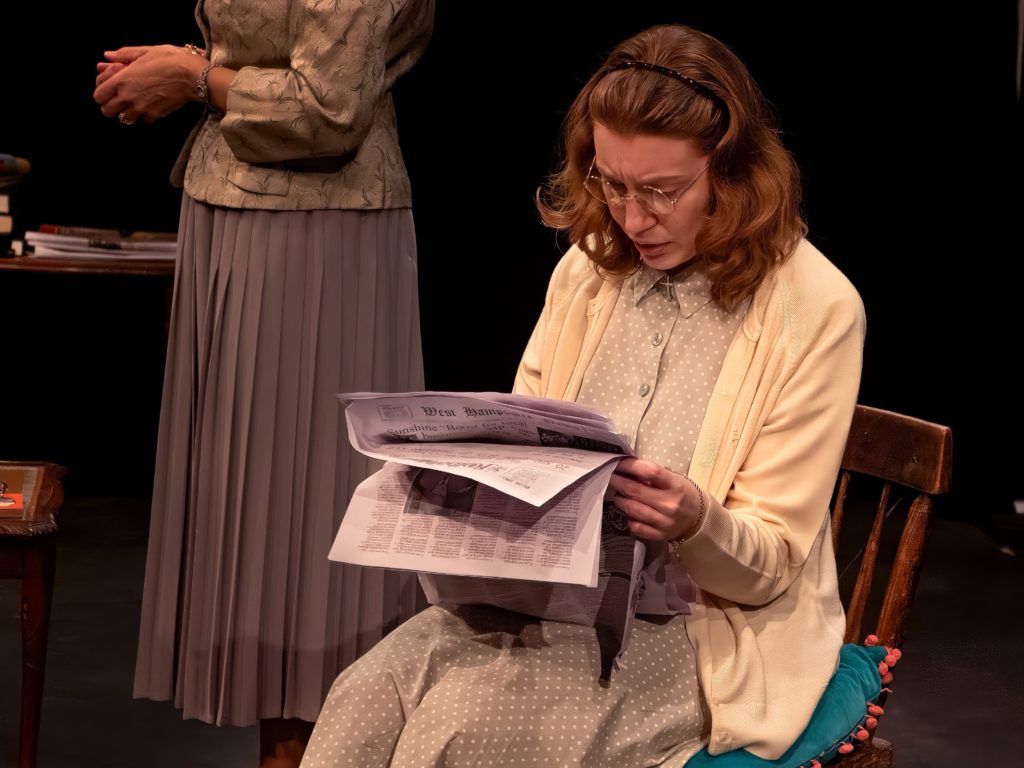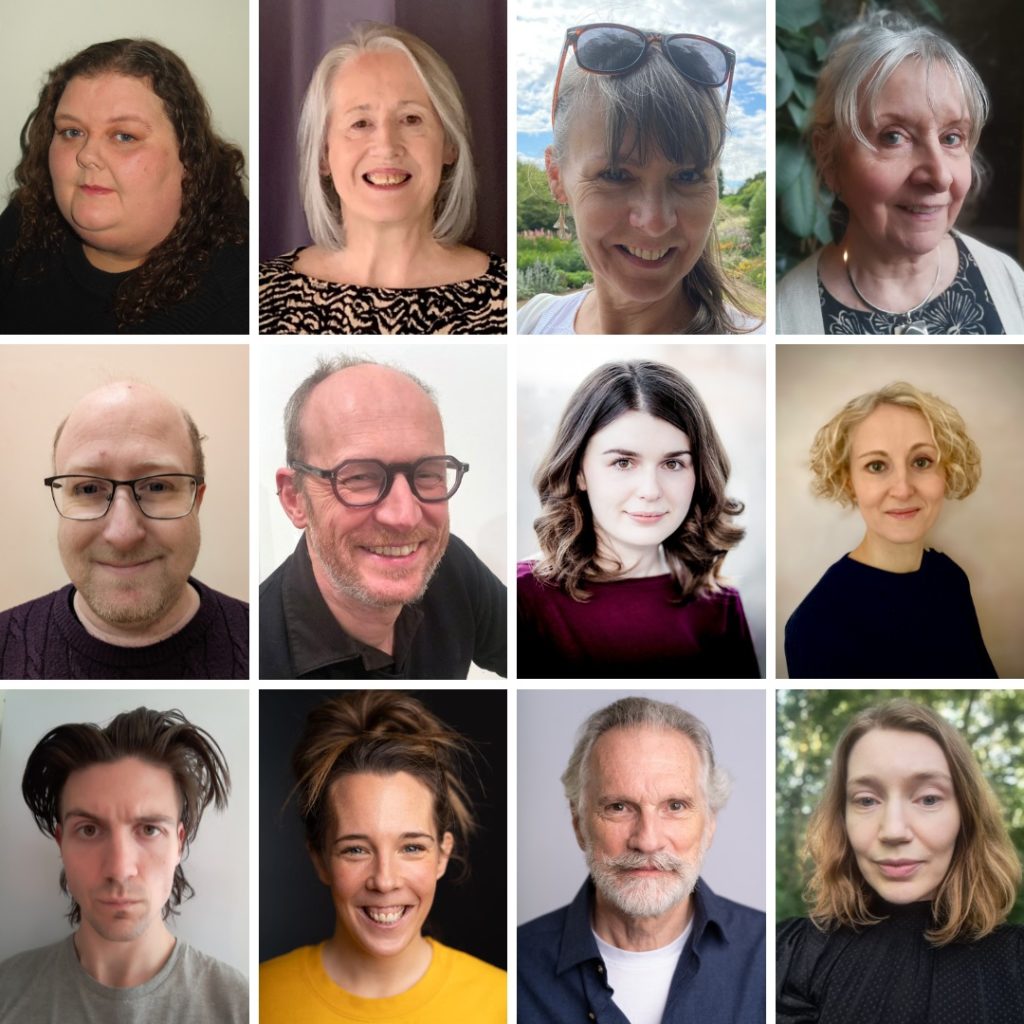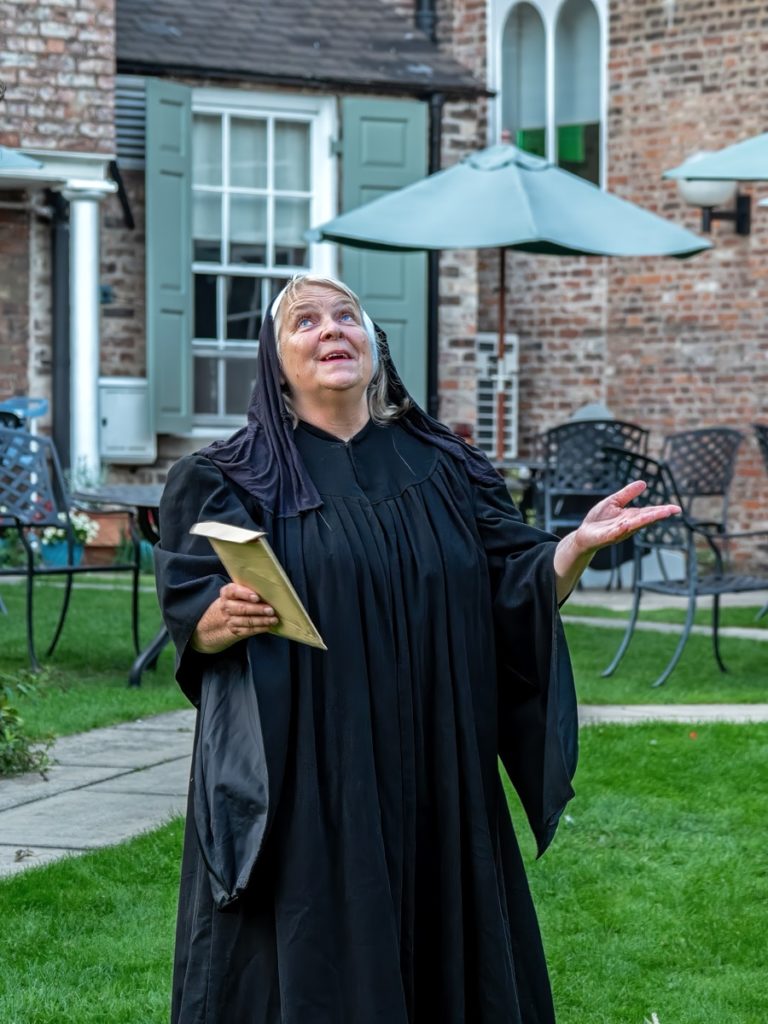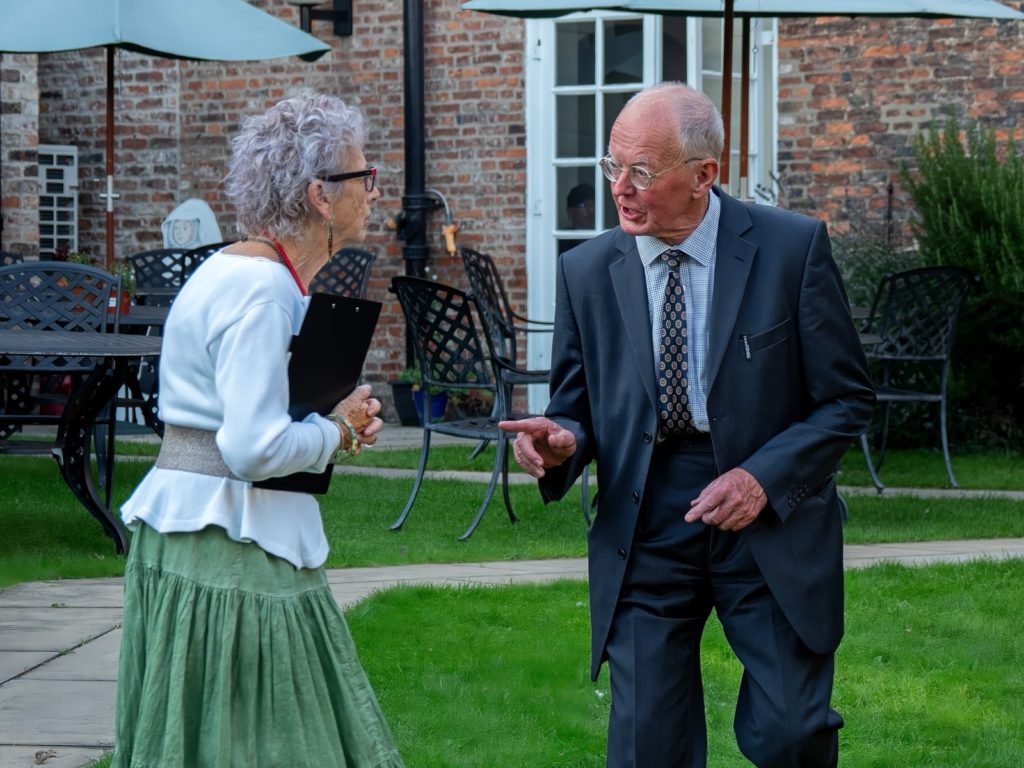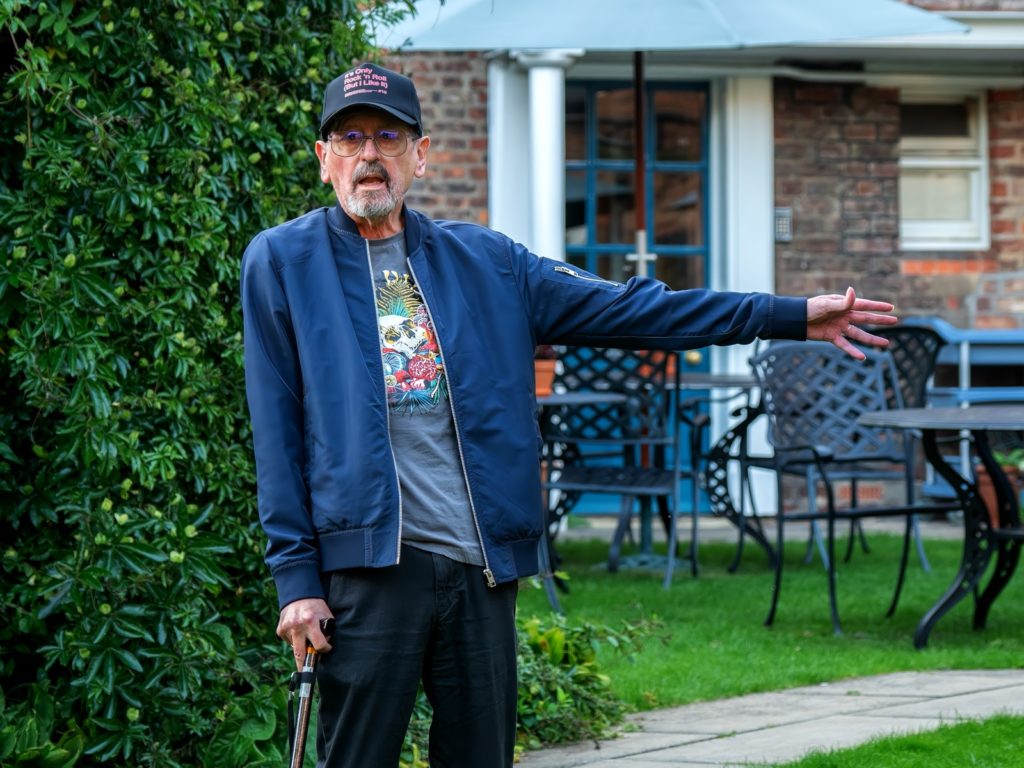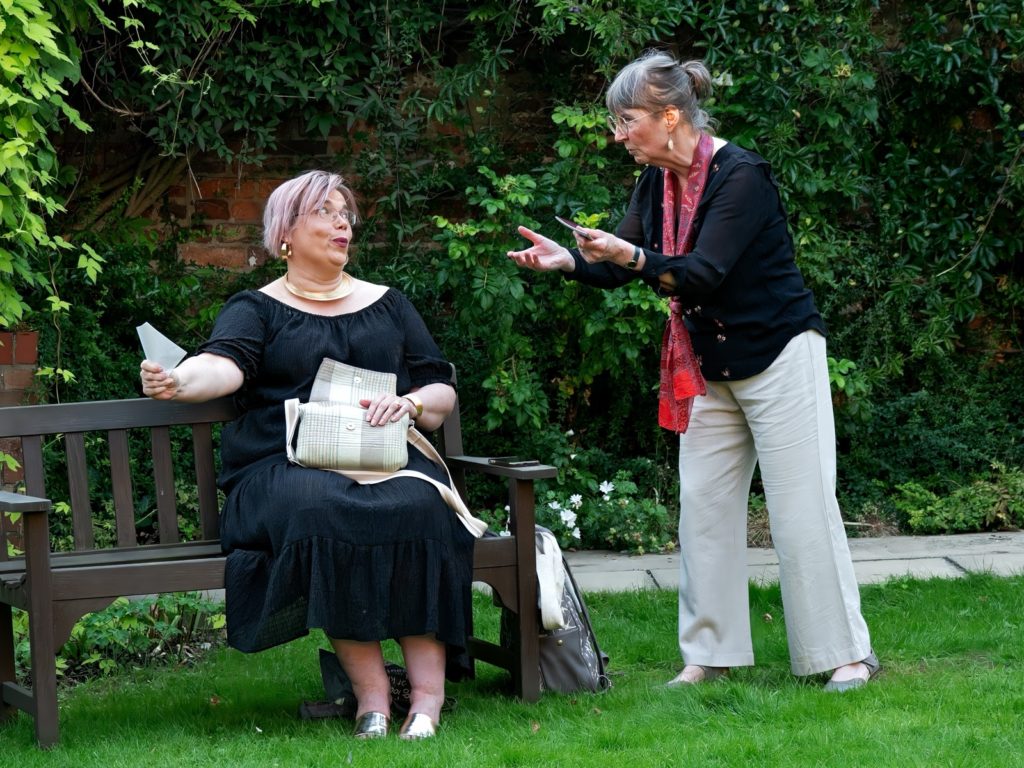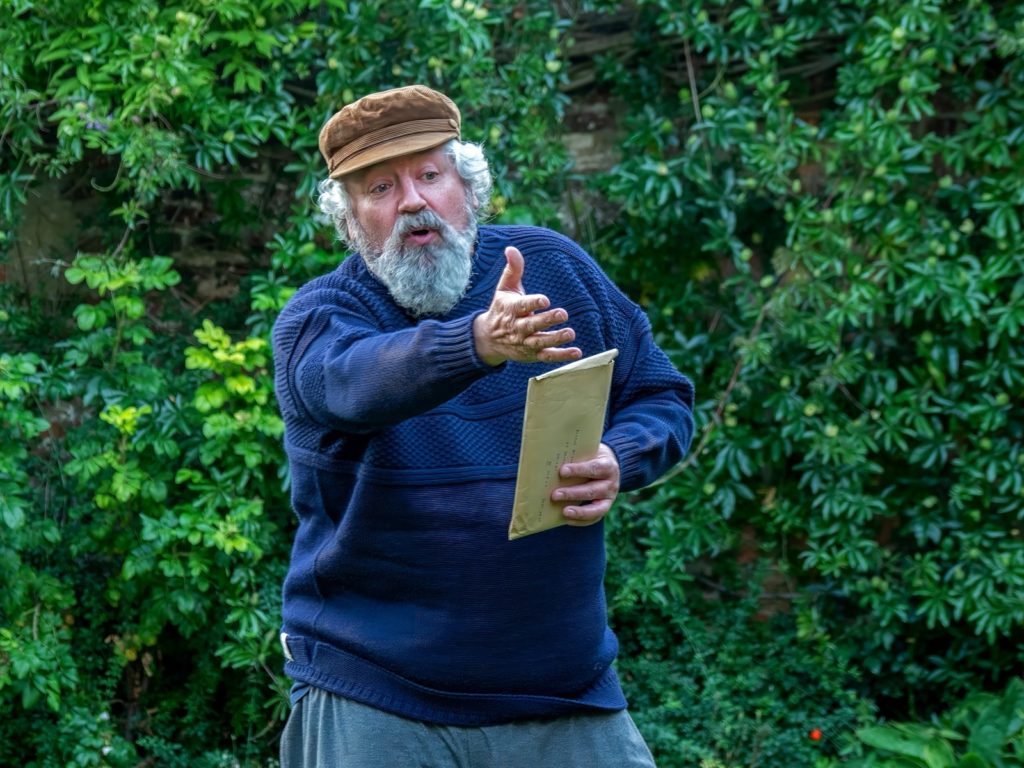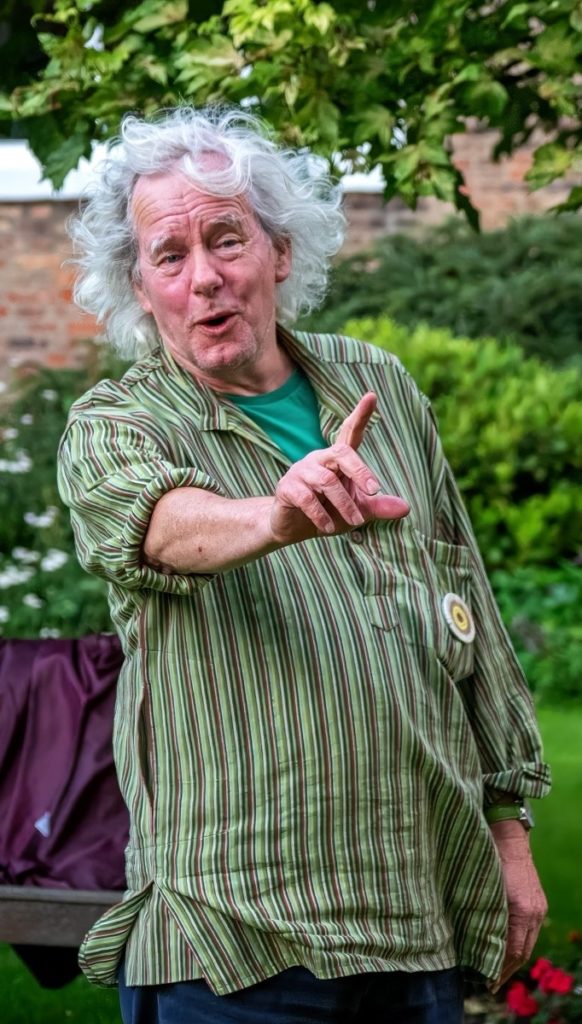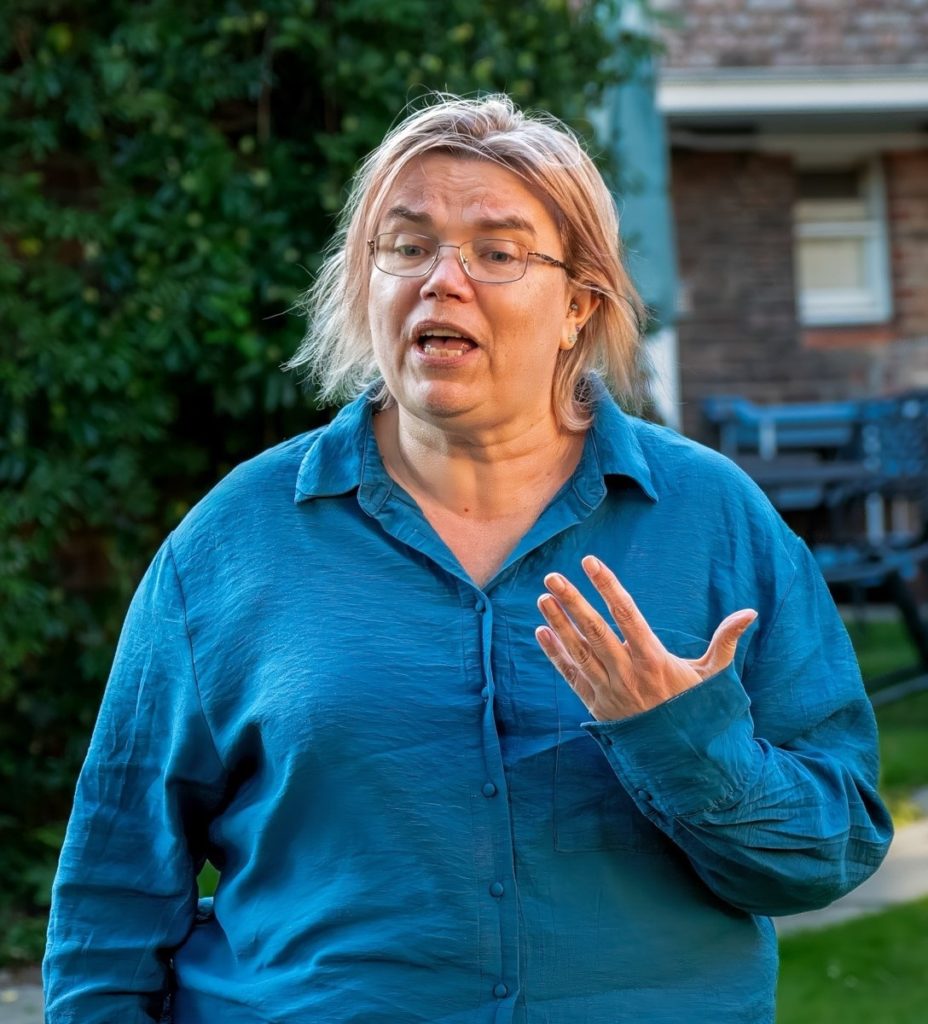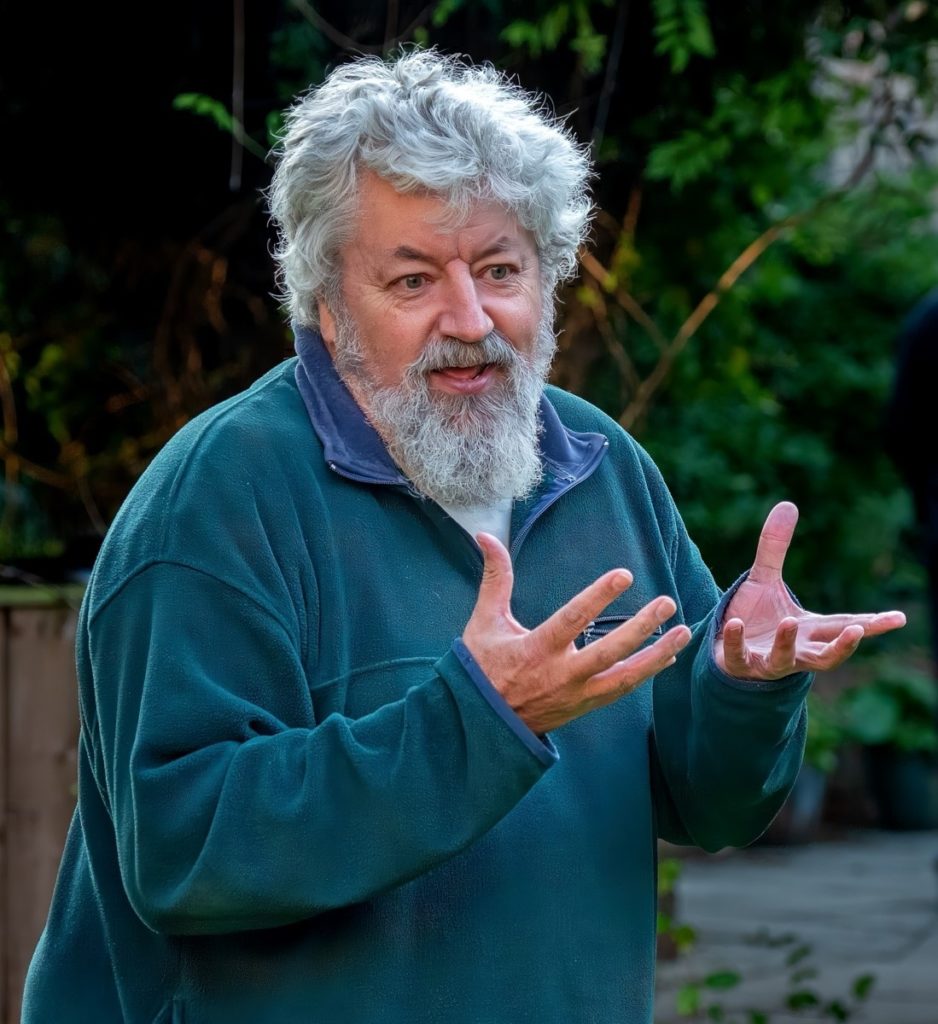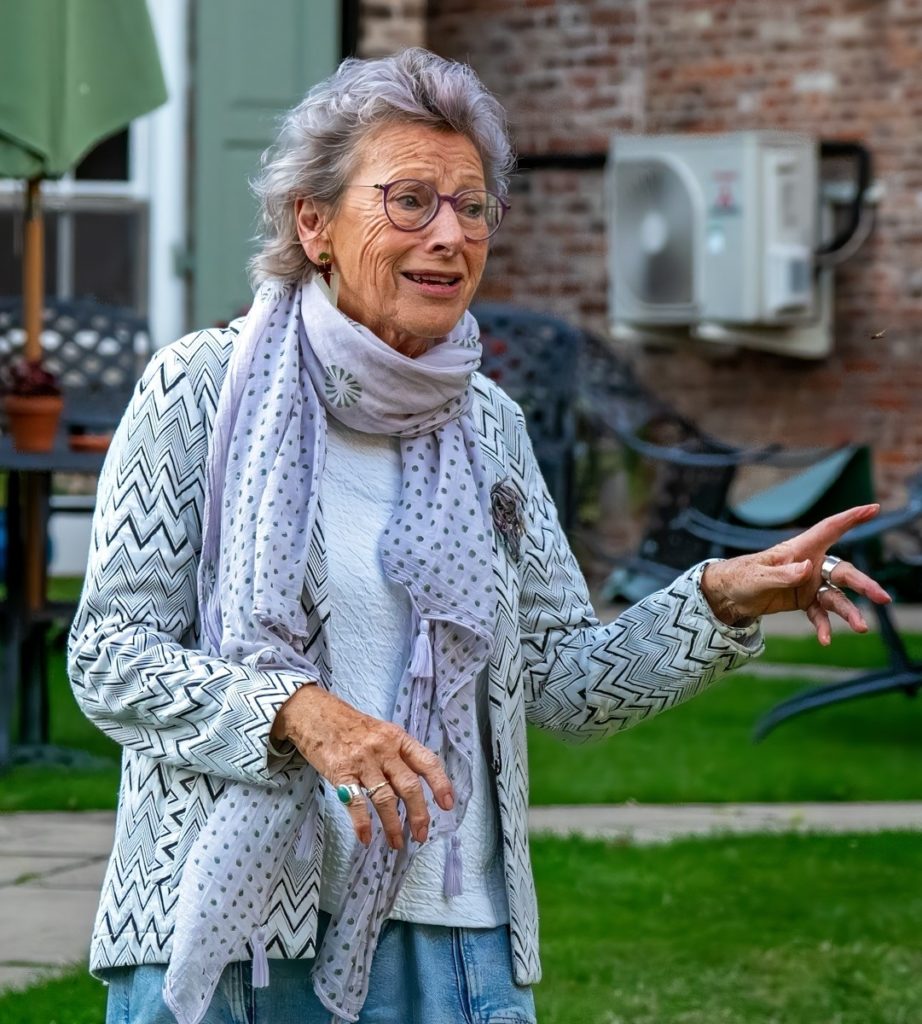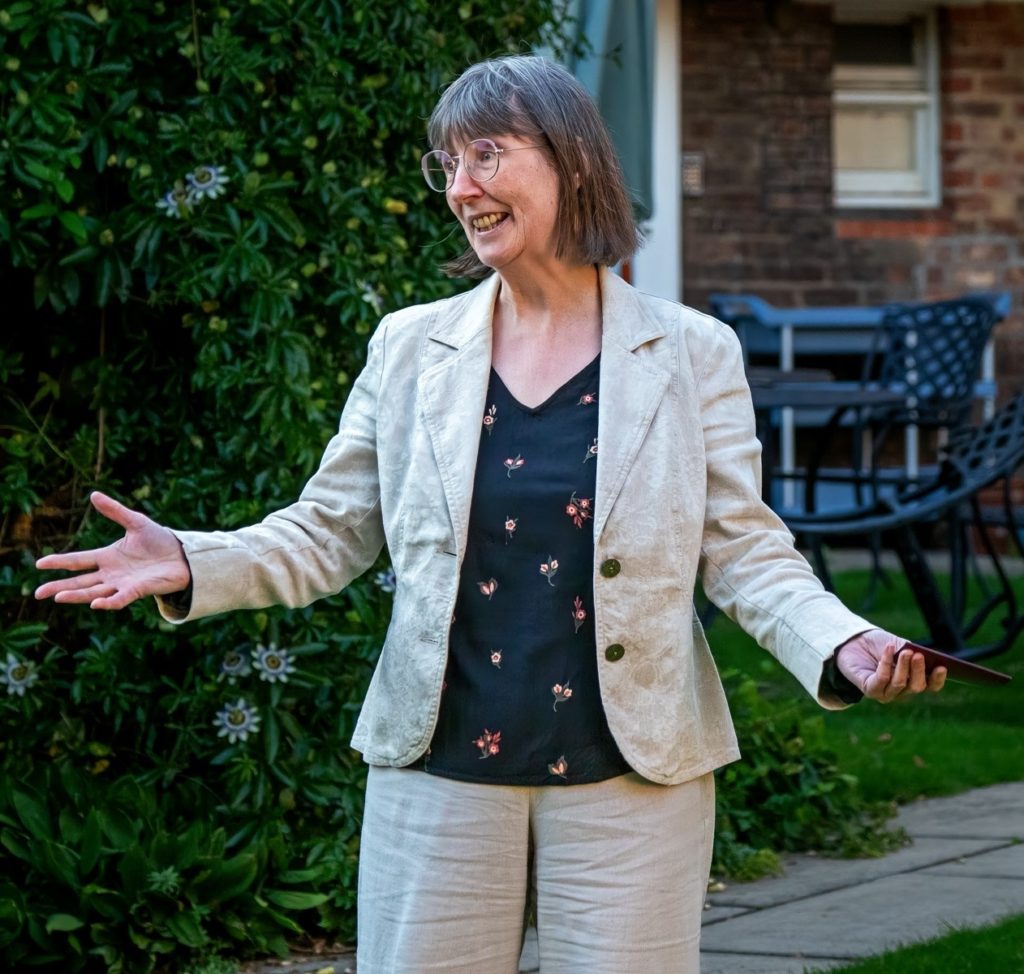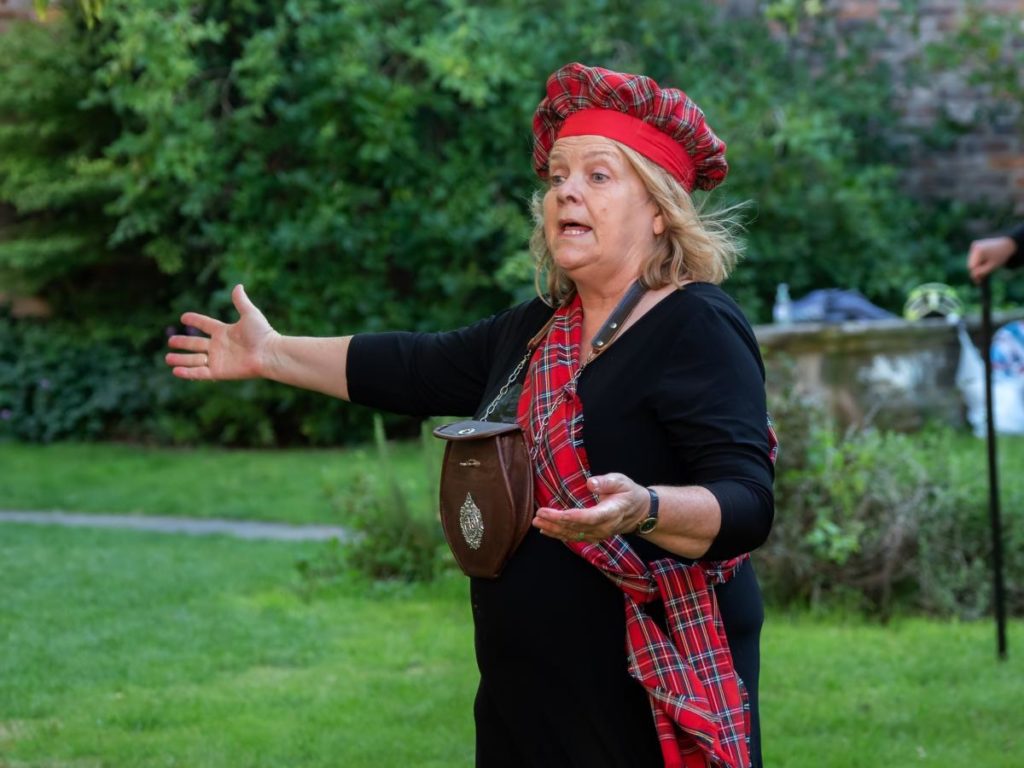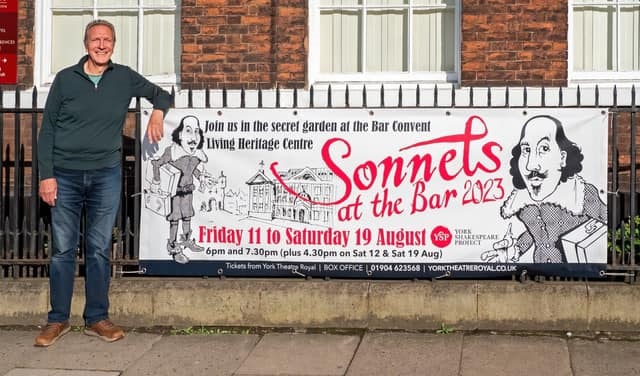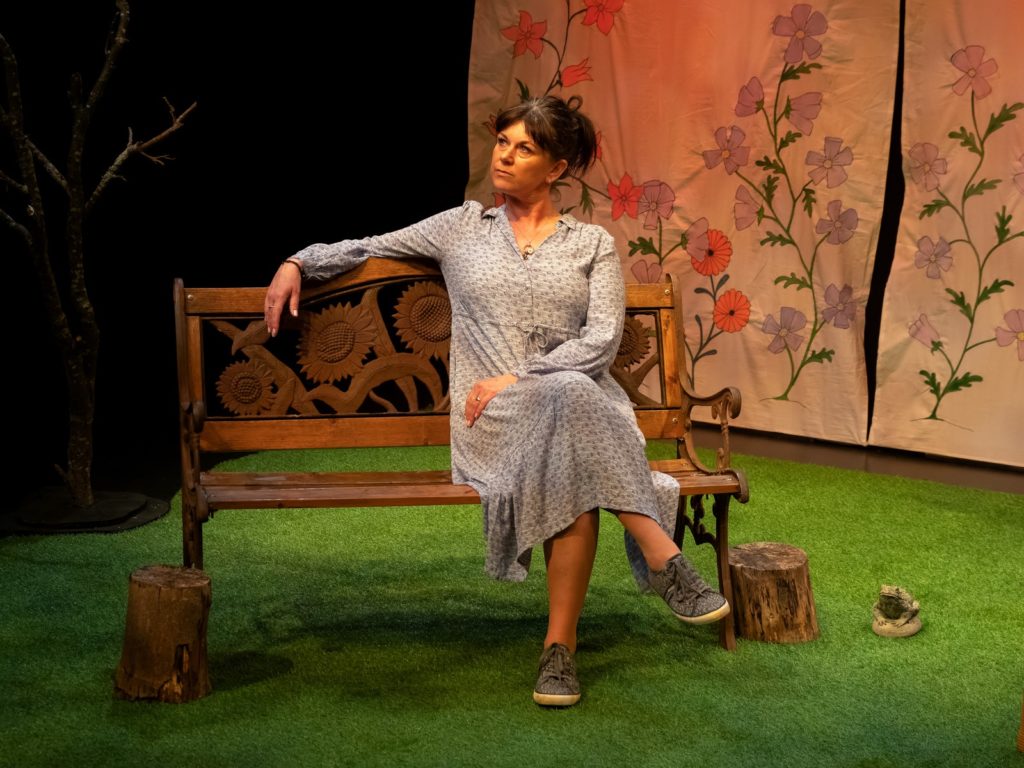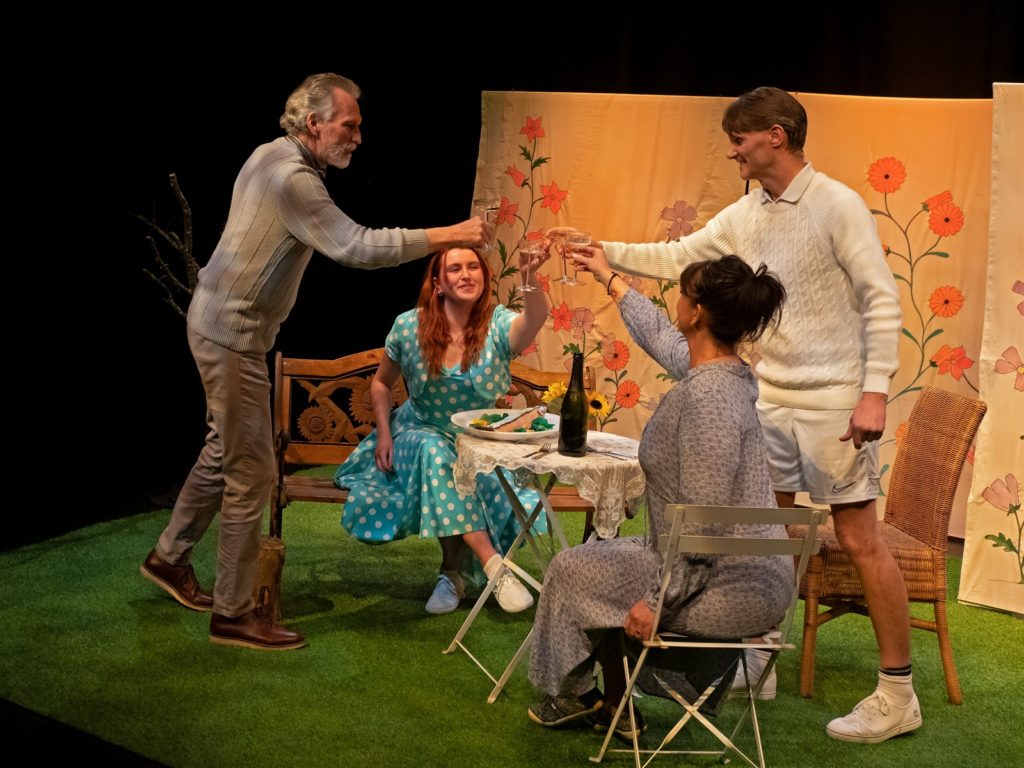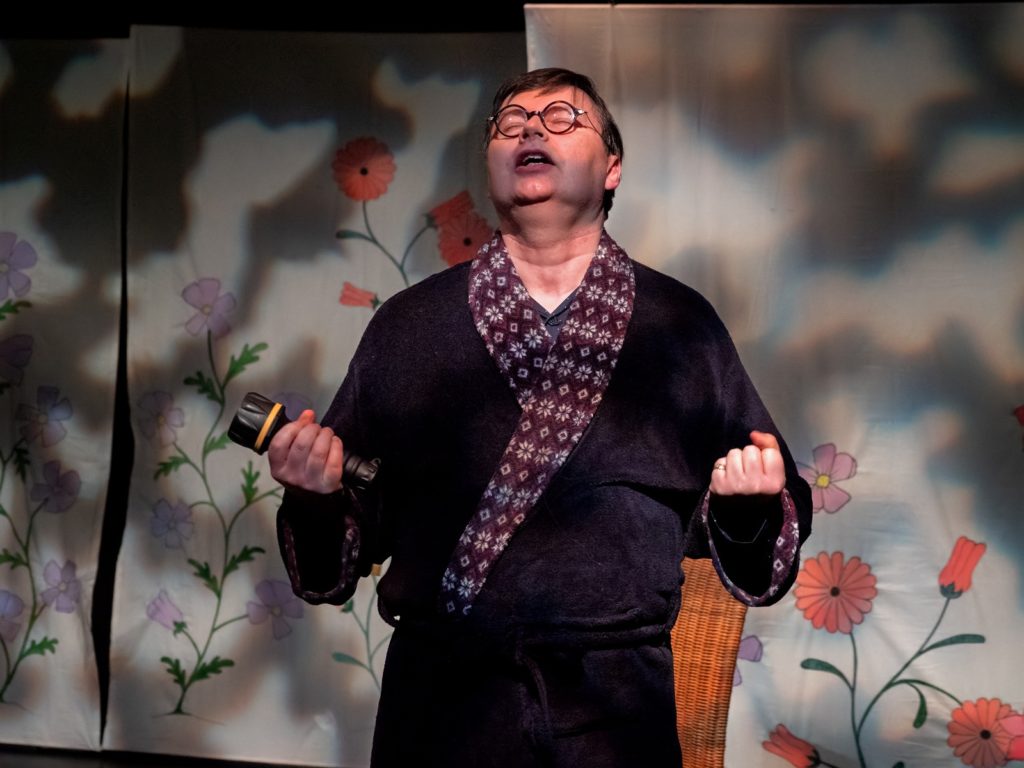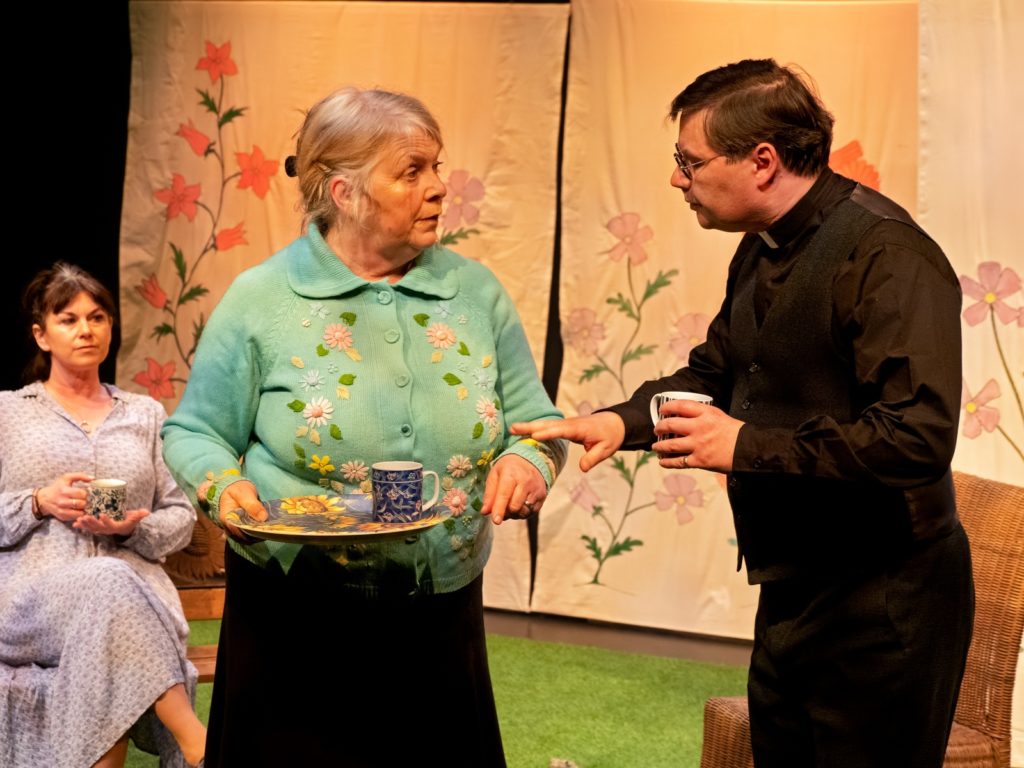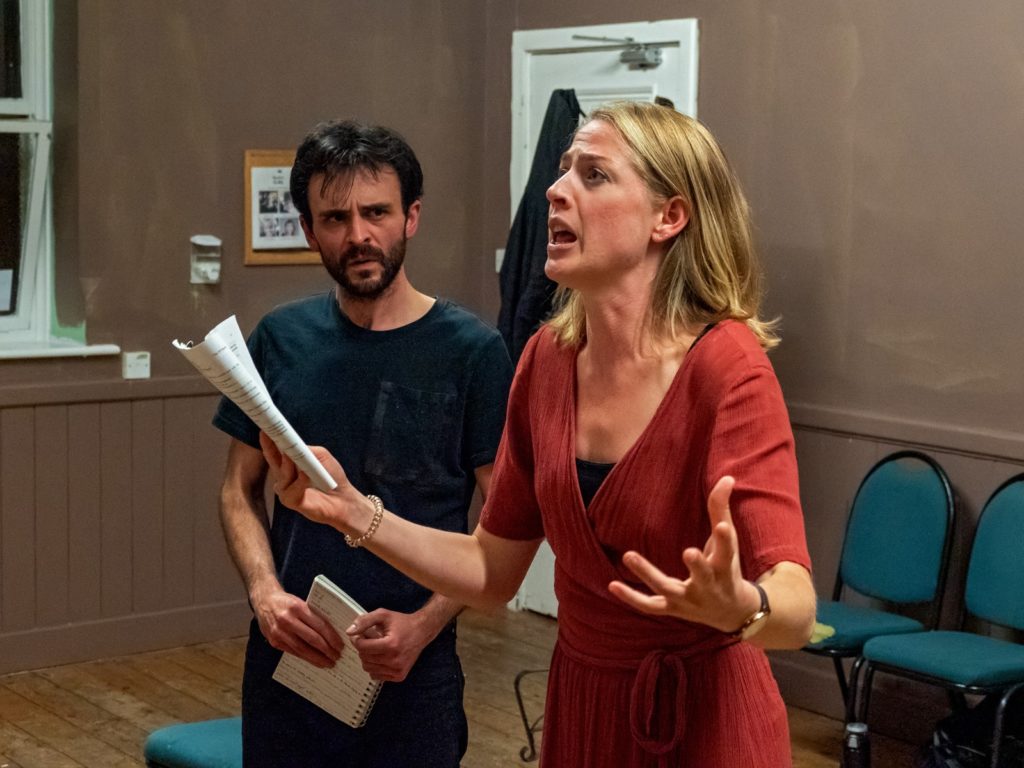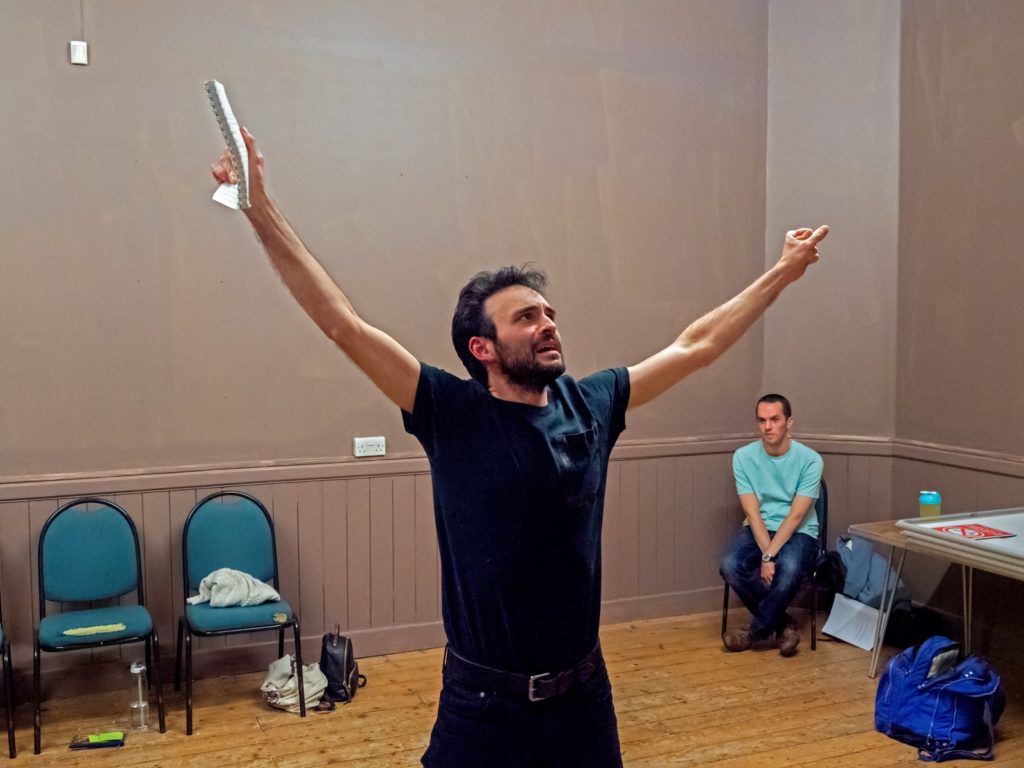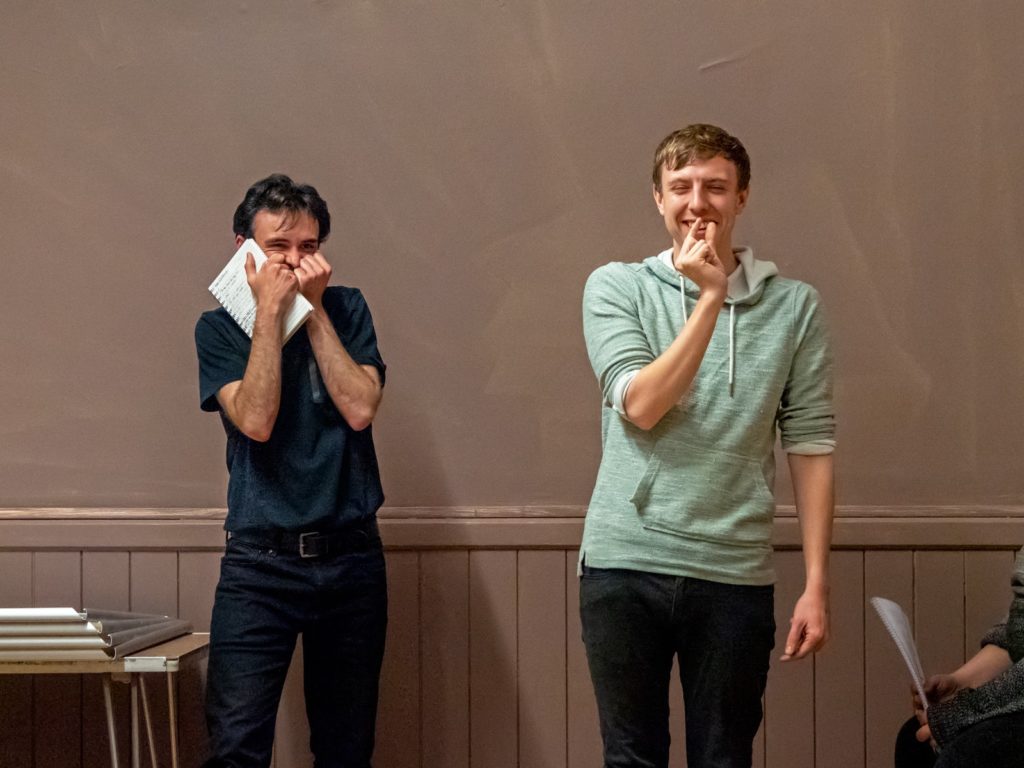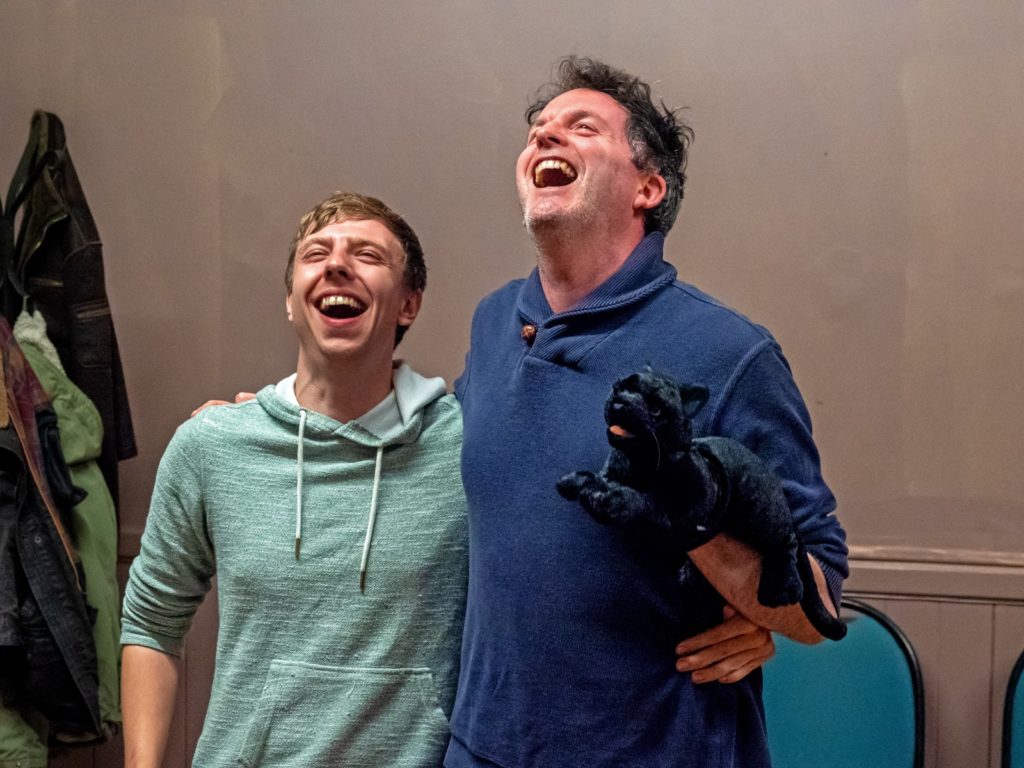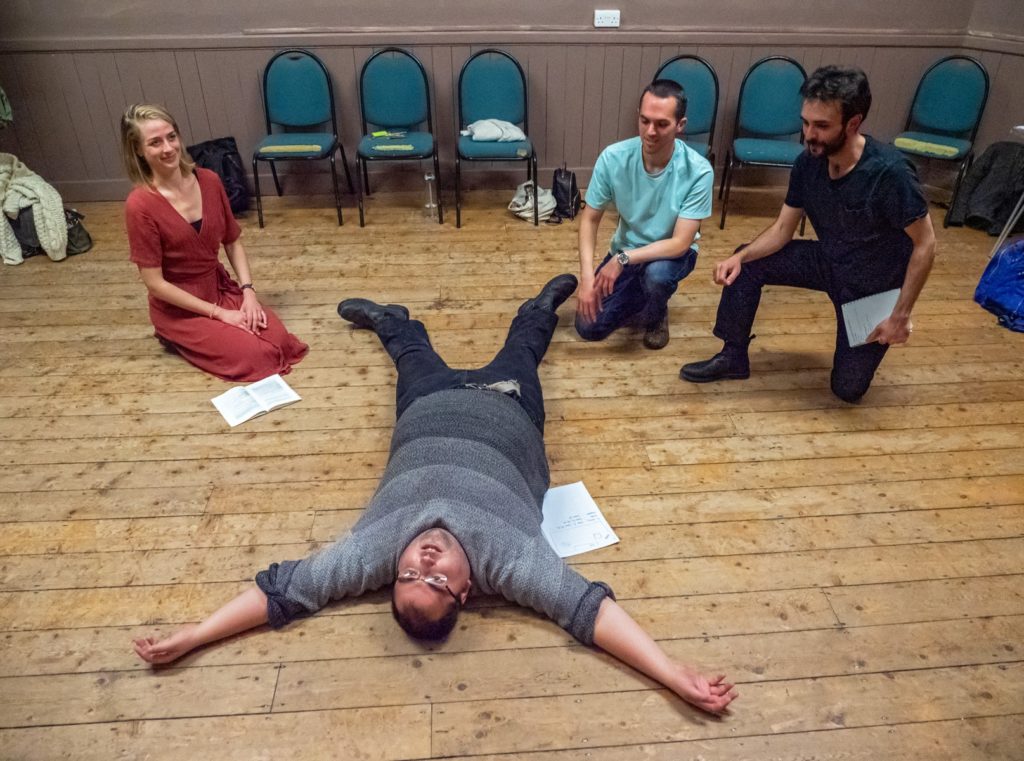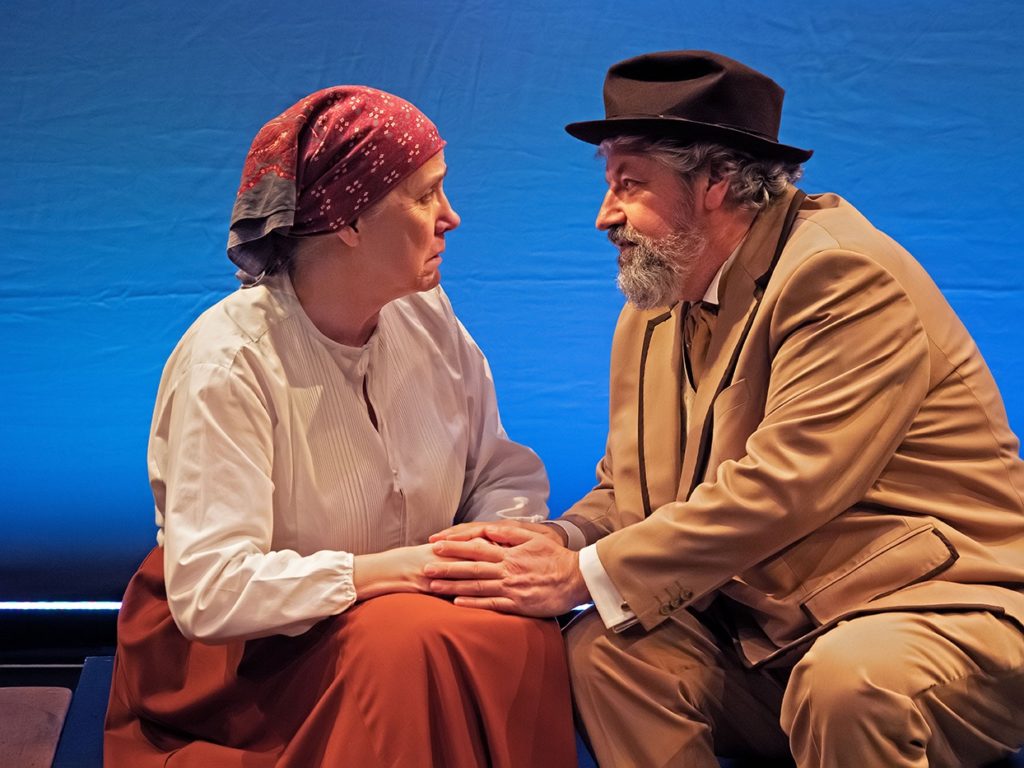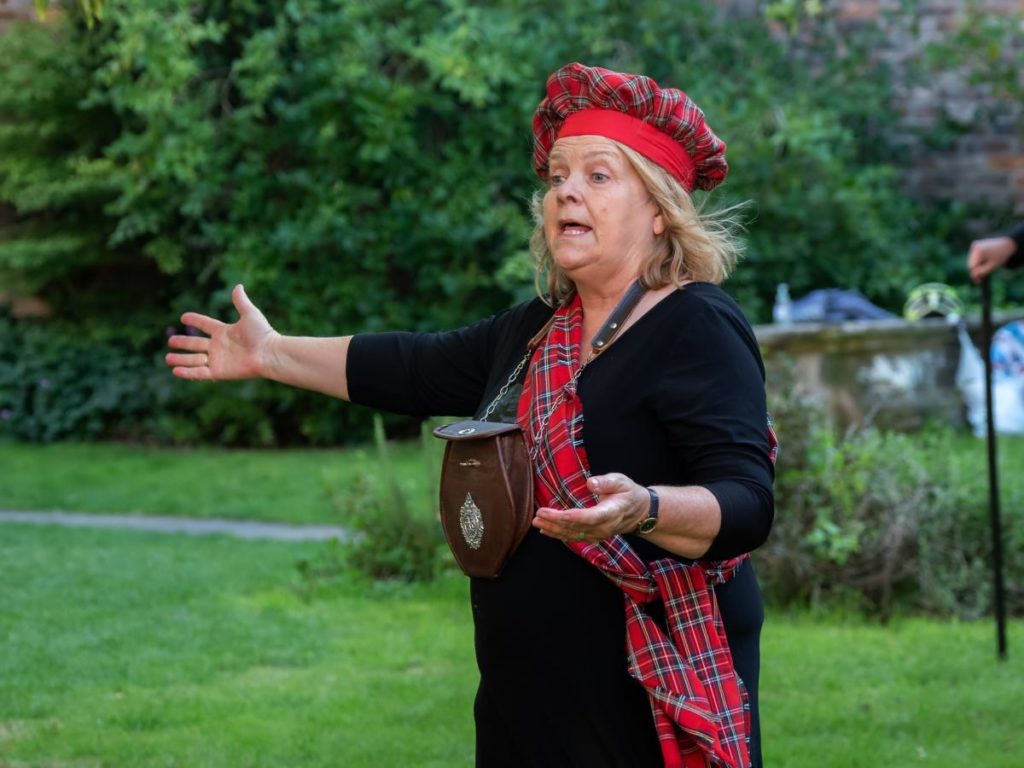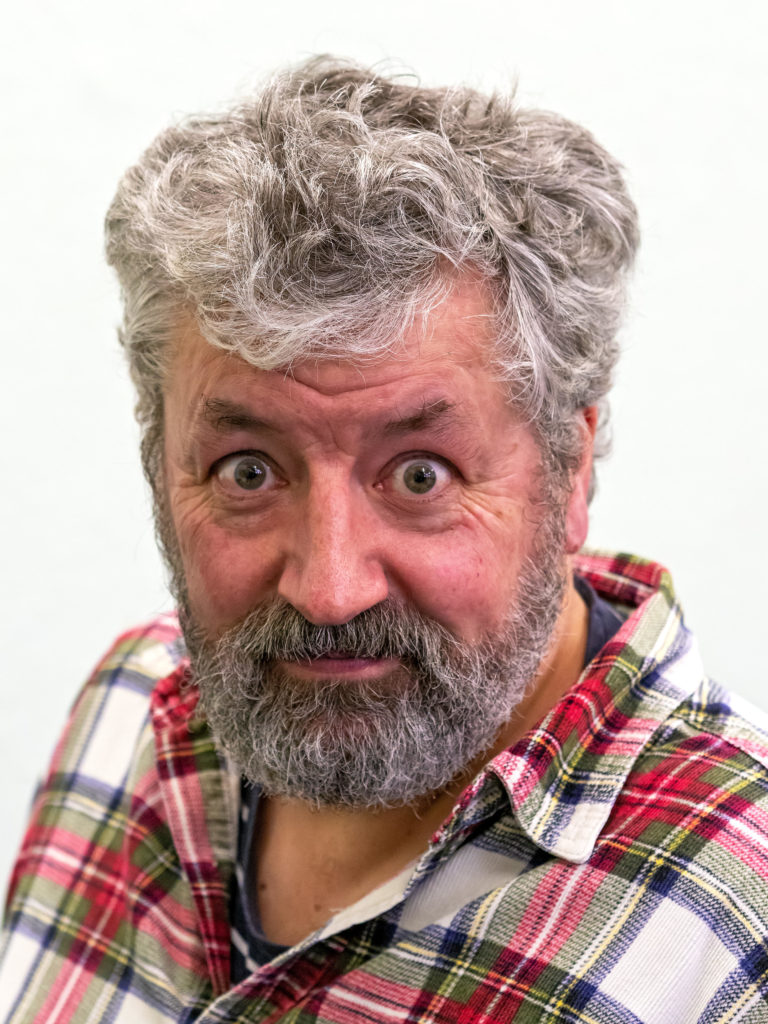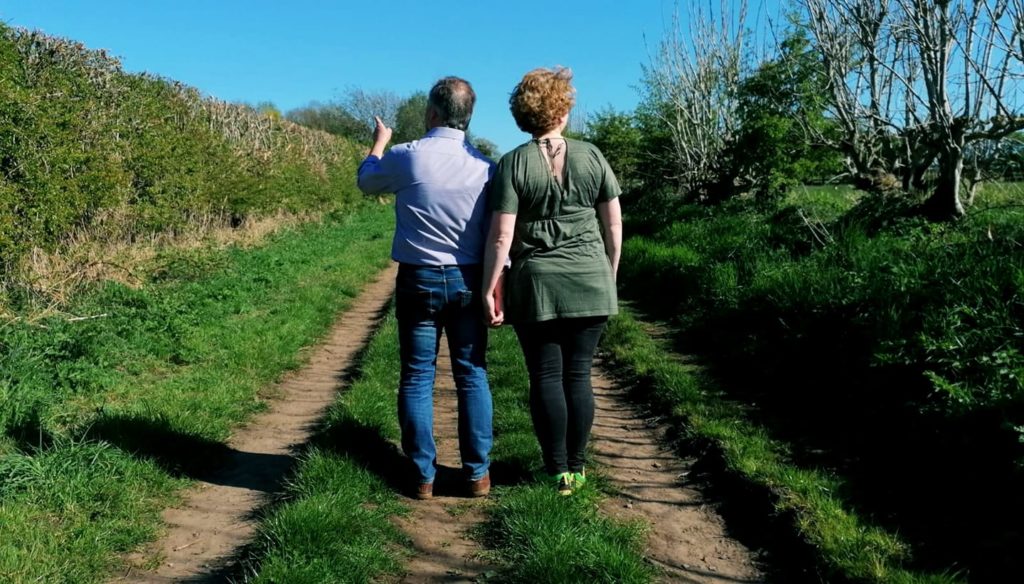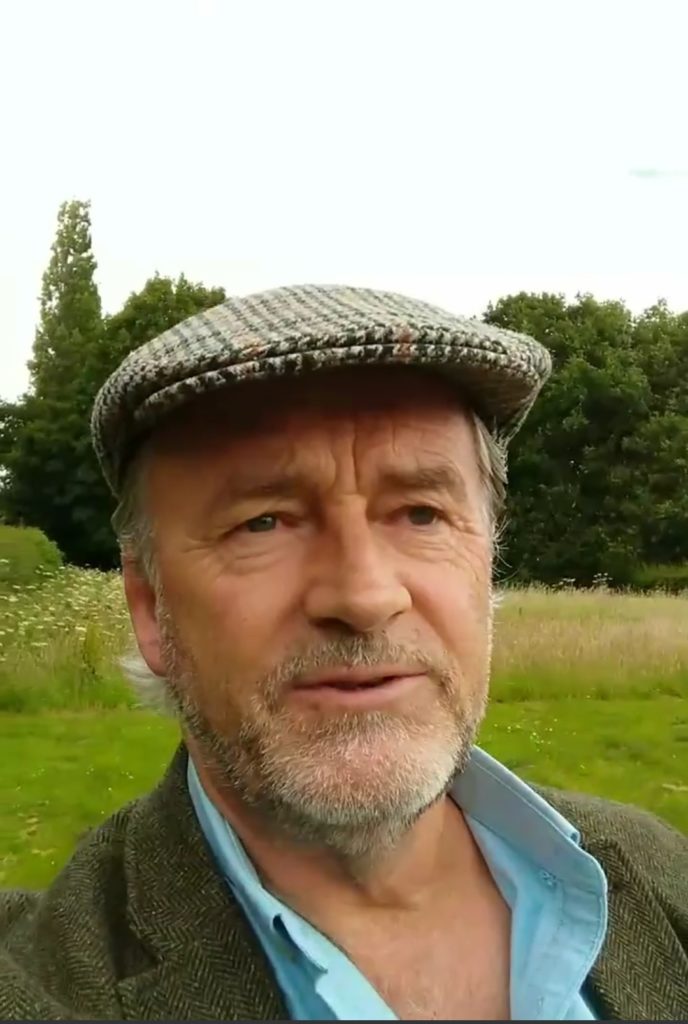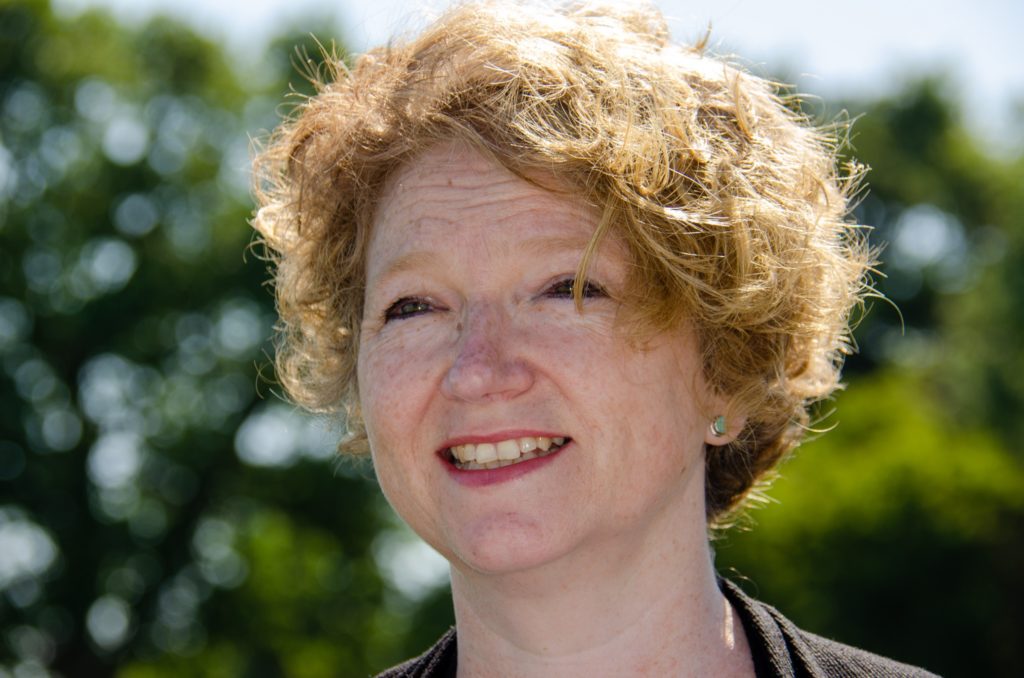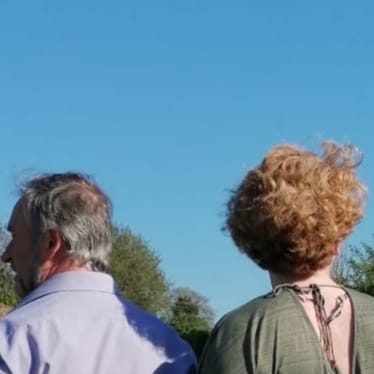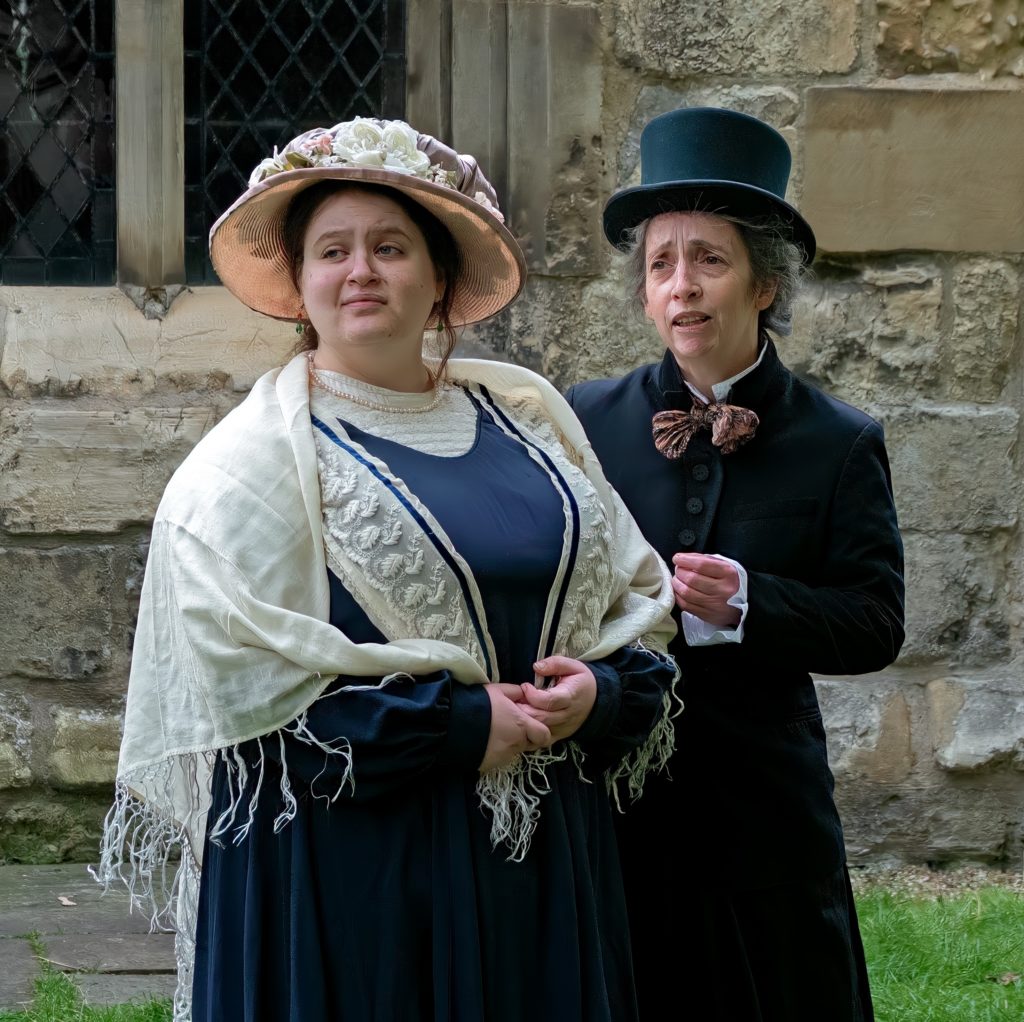
YORK Shakespeare Project audiences are greeted by not one, but two testaments to the groundbreaking impact of Anne “Gentleman Jack” Lister at Holy Trinity Church, Goodramgate.
First, by the entrance, York Civic Trust’s rainbow plaque commemorates the Easter 1834 wedding sacraments of “Anne with an ‘E’ and Anne without”, Ann Walker, recorded as the first lesbian marriage in Great Britain. Another historic landmark in this most storied of cities.
Once inside, by the churchyard path, Anne Lister has temporarily taken on tansy beetle form in a metallic sculpture for the York Trailblazers trail of unsung heroes until September 30.
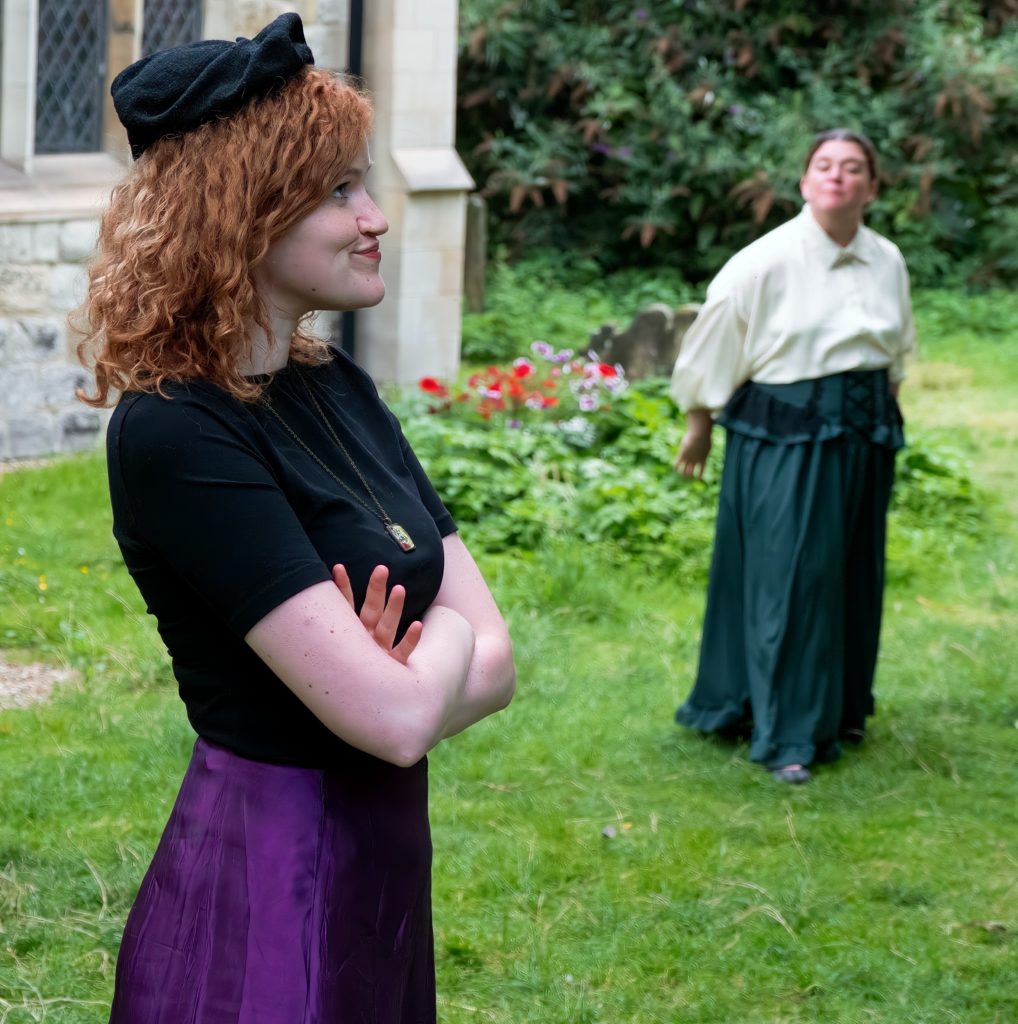
In Jen Dring’s design, the beetle’s back is covered in the diary scribblings of Anne Lister: words that have helped to shape the opening to Josie Campbell’s script to accompany 12 of Shakespeare sonnets in this tenth anniversary YSP production.
YSP’s theatrical conceit is to offer an invitation to a secret wedding – spoiler alert, the nuptials of Anne Lister (Sally Mitcham) and Ann Walker (Effie Warboys) – toasted on arrival with a free celebratory drink.
The audience is welcomed by the Reverend Goode, the “poptastic vicar and host” played by director Tony Froud, who promptly introduces himself as Ebenezer Goode in the first of a plethora of “couldn’t resist” pop culture references by Campbell. Status Quo, Paul McCartney and The Rolling Stones all follow, Rev Goode at one point quoting the lyrics of You Can’t Always Get What You Want.
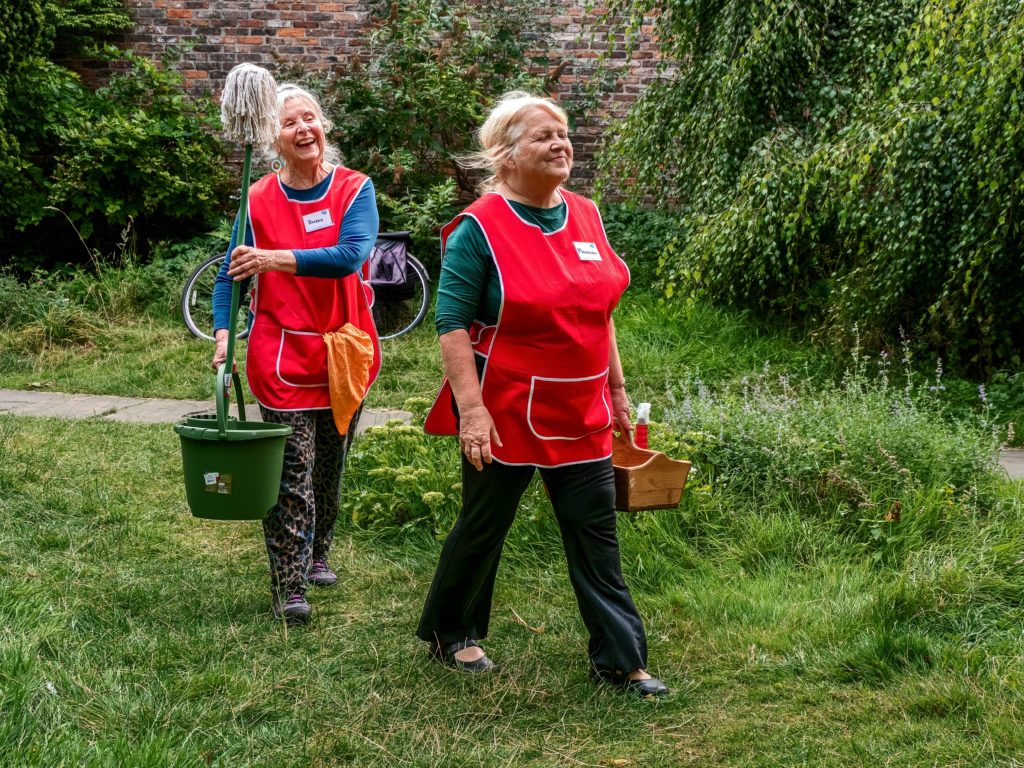
Attired in York Theatre Royal costumes, Mitcham and Warboys play out the Lister-Walker betrothal, each bursting into a sonnet in the manner of characters breaking into song in a musical when there is no other form of expression that will suffice in that moment.
Mitcham’s assertive When I Have Seen By Time’s Fell Hand Defaced will be the first of four Shakespeare sonnets making their YSP debut in this summer’s set.
Warboys follows, one of six new sonneteers in Froud’s 2024 ranks, having made her mark in cheery fashion in YSP productions such as The Tempest. As she discovers in her opening conversation with Mitcham’s Miss Lister, the challenge for all is to acclimatise to performing outdoors, against the absorbant backdrop of the church walls, under the open sky.
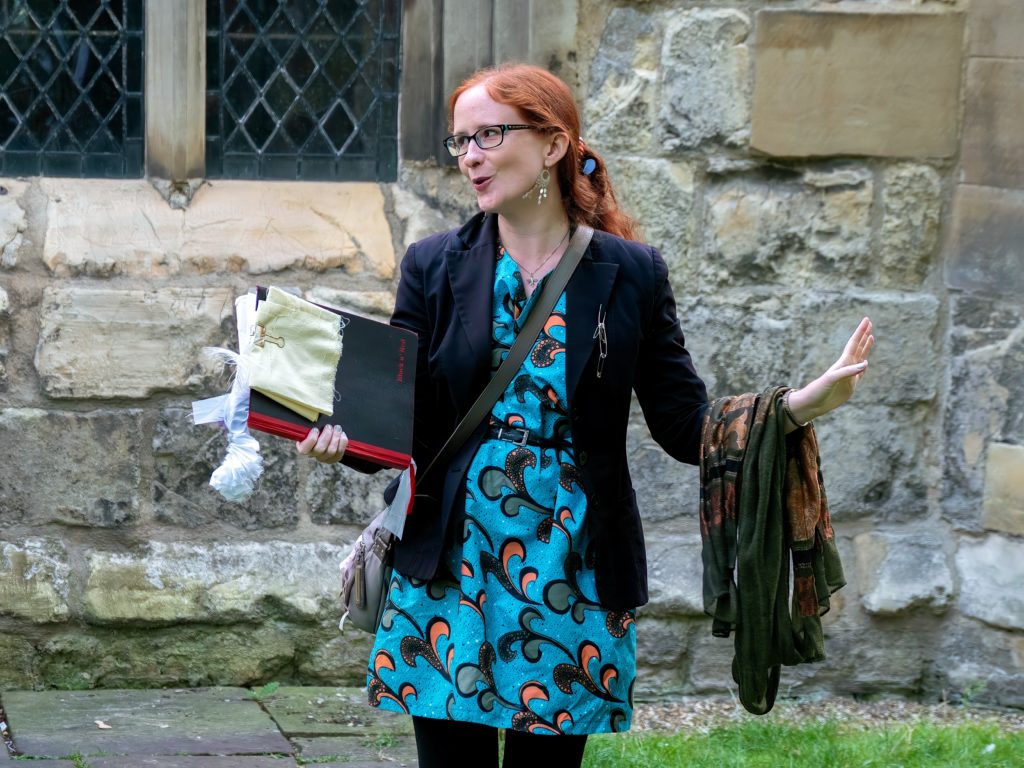
What’s more, the nearby restaurant kitchen fan is whirring loudly and the staff are busy with bustling crockery and food prep on the 6pm shift. Not the easiest of circumstances in which to perform, and Froud’s last words of advice before the first performance were of the need for volume.
In such a space, as soon as heads turn sideways, the loss in clarity can be considerable, but only through experience does a performer learn the skill of projection. Best advice here: follow the example of Maurice Crichton and Helen Wilson, old hands at this sonneteering malarkey.
No doubt, Froud will have given post-show notes to re-emphasise that volume speaks volumes. There is a case too for having the actors move closer to the seated audience, or indeed for the seating to be moved forward, and also to project straight on as much as possible in this declamatory framework.
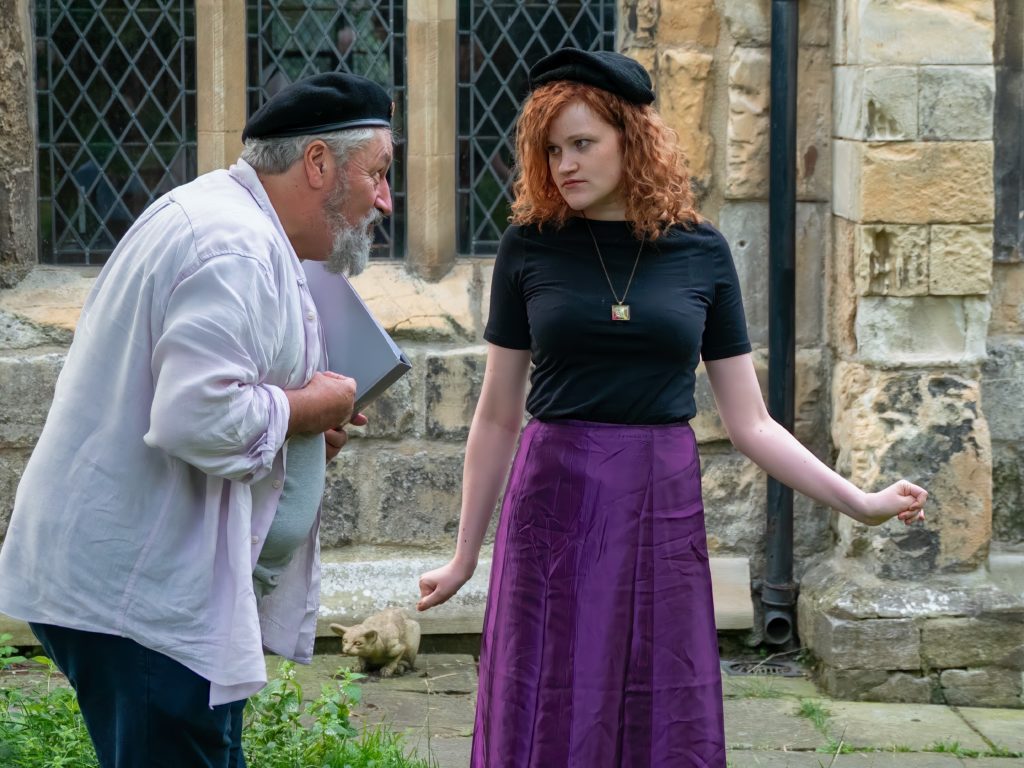
Crichton, in beret, cravat and exasperated Scottish accent, is playing Callum, “the far from calm director” of what turns out to be a rehearsal for an amateur company at Rev Goode’s church. And so, rather than a play within a play in keeping with Frayn’s Noises Off, Ayckbourn’s A Chorus Of Disapproval or Mischief’s The Play That Goes Wrong, instead we have sonnets within backstage shenanigans.
One by one, or two by two, we shall encounter staff, actresses and helping hands. Here come the church cleaners, debutant sonneteer Marie-Louise Feeley’s Doreen, an aspiring performer, and Wilson’s world-weary, seen-it-all-before Maureen, marigold gloves stuffed in her overalls. Her sonnet, Th’expense Of Spirit In A Waste Of Shame, is one of the high points.
Two rival actresses, steady-away Felicity (Grace Scott) and flighty young leading lady Lily (Alexandra Logan) will spar amusingly, the latter’s nascent prima-donna tendencies in the role of Anne Lister’s earlier paramour Maria Belcombe, testing Crichton’s acerbic Callum to breaking point.
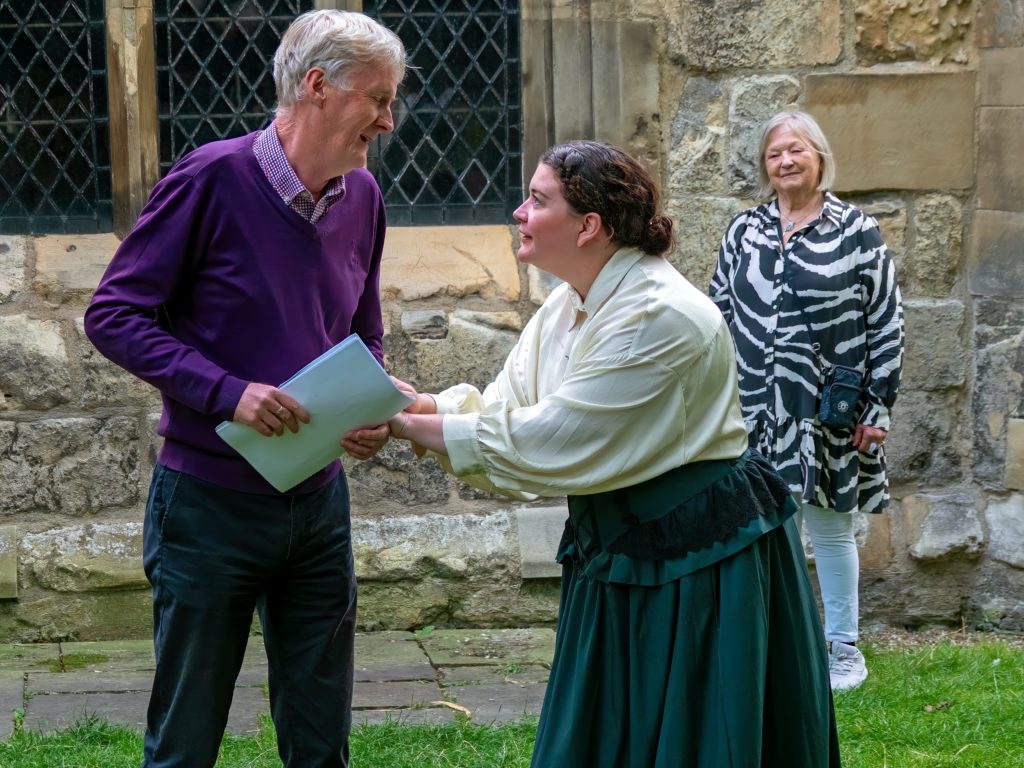
Liam Godfrey, another of the debutants, captures the diffidence of tardy actor Graham (playing Captain Sutherland, from Anne Lister’s story) as he makes his reacquaintance with Felicity, his partner in pantomime cow, as Campbell brings another artform into play.
Emily Hansen’s Lavinia, the unflappable costume designer, and Halina Jarosewska’s Maggie, the indispensable stage manager, pop up regularly, in that quietly essential way that such theatre stalwarts do. Hansen’s delivery of Being Your Slave, What Should I Do But Tend suits Maggie perfectly.
The finale brings everyone together, Lister, Walker, et al, led by Froud’s good shepherd Rev Goode in Let Me Not To The Marriage Of True Minds, rounding out Campbell’s amusing caricature of the theatre world, celebration of love and abiding joy in Shakespeare’s sonnets.
York Shakespeare Project, Summer Sonnets, Holy Trinity Church, Goodramgate, York, until August 17, 6pm and 7.30pm nightly, plus 4.30pm on Saturday. Box office: 01904 623568 or yorktheatreroyal.co.uk/show/summer-sonnets/.
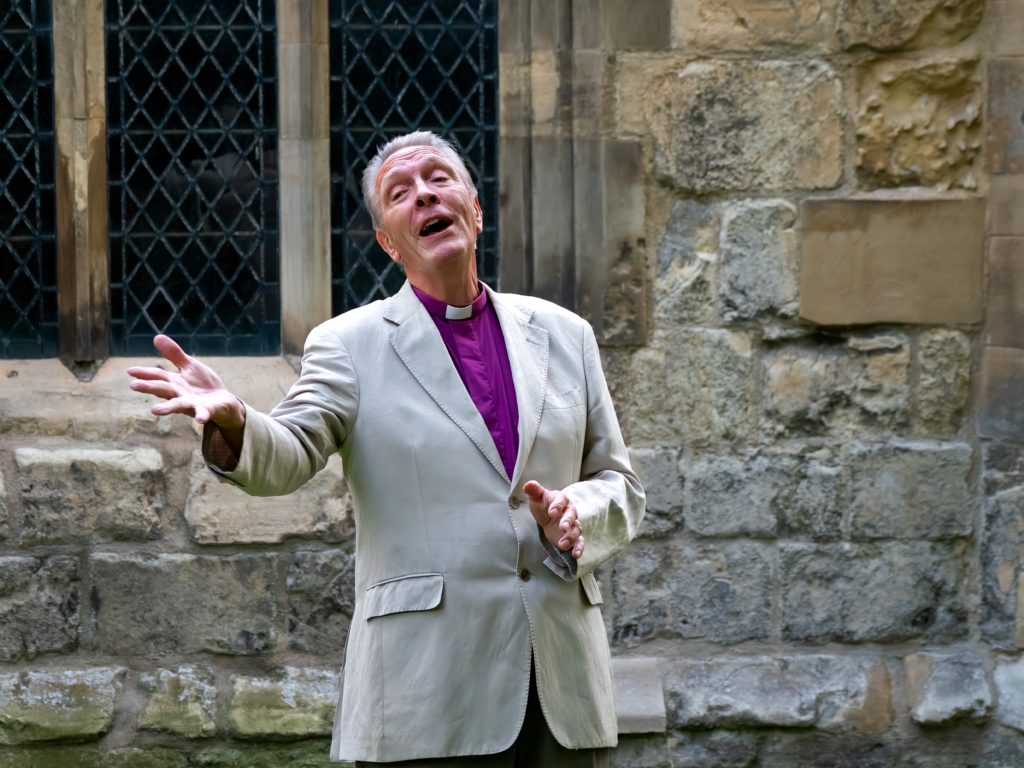
Coming next:
William Shakespeare’s The Two Gentlemen Of Verona, Theatre@41, Monkgate, York, October 22 to 26, 7.30pm plus 2.30pm Saturday matinee
AFTER “much deliberation, and too many wonderful people auditioning”, director Tempest Wisdom has picked York Shakespeare Project’s cast for The Two Gentlemen Of Verona.
In the company will be: Jodie Fletcher; Stuart Lindsay; Jamie Williams; Nick Patrick Jones; Thomas Jennings; Lily Geering; Anna Gallon; Liz Quinlan; Lara Stafford; Wilf Tomlinson; Effie Warboys; Mark Payton; Stuart Green; Jon Cook; Charlie Spencer; Pearl Mollison; Kay Maneerot; Celeste North Finocchi and Charlie Barras.
The first night, October 22, will be a preview performance (£10). Tickets for the rest of the week cost £15. Box office: tickets.41monkgate.co.uk.

